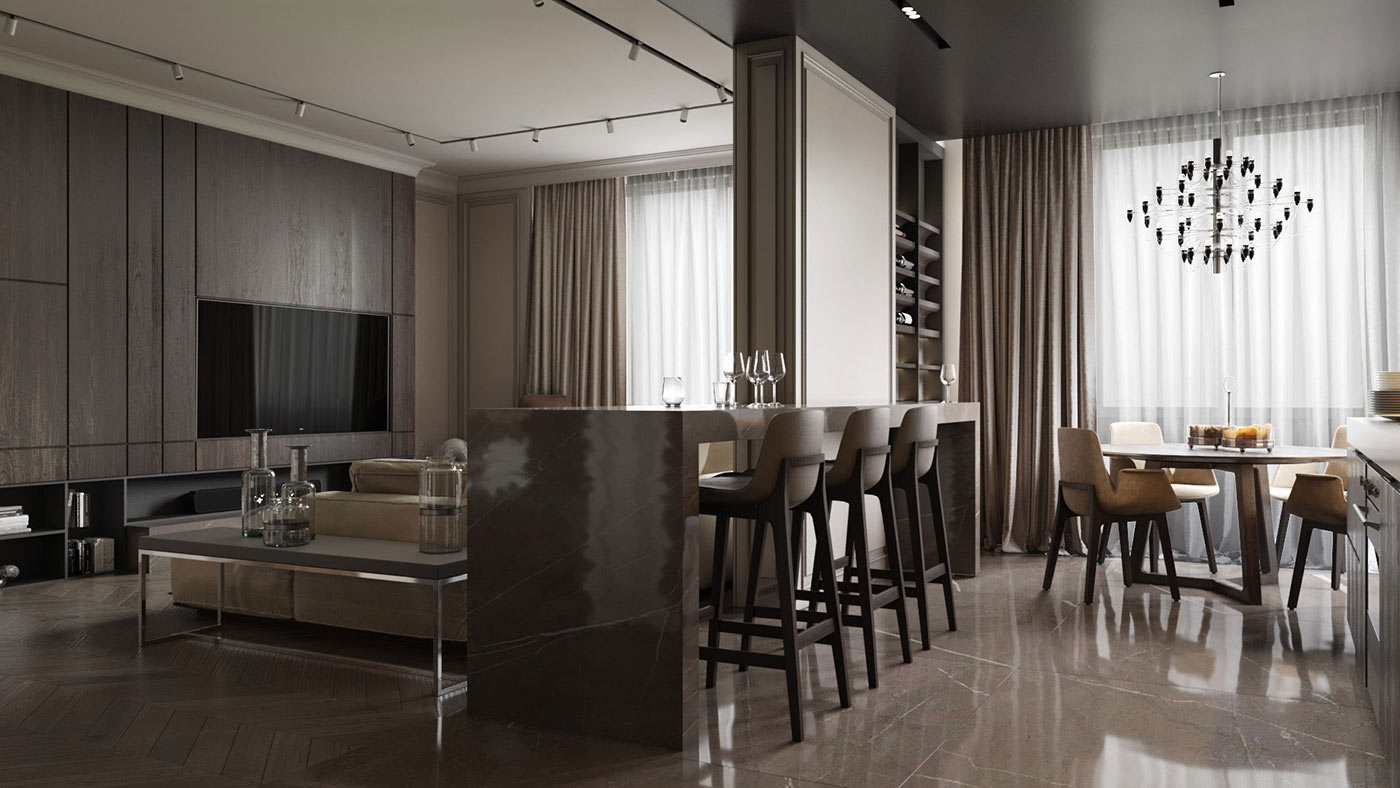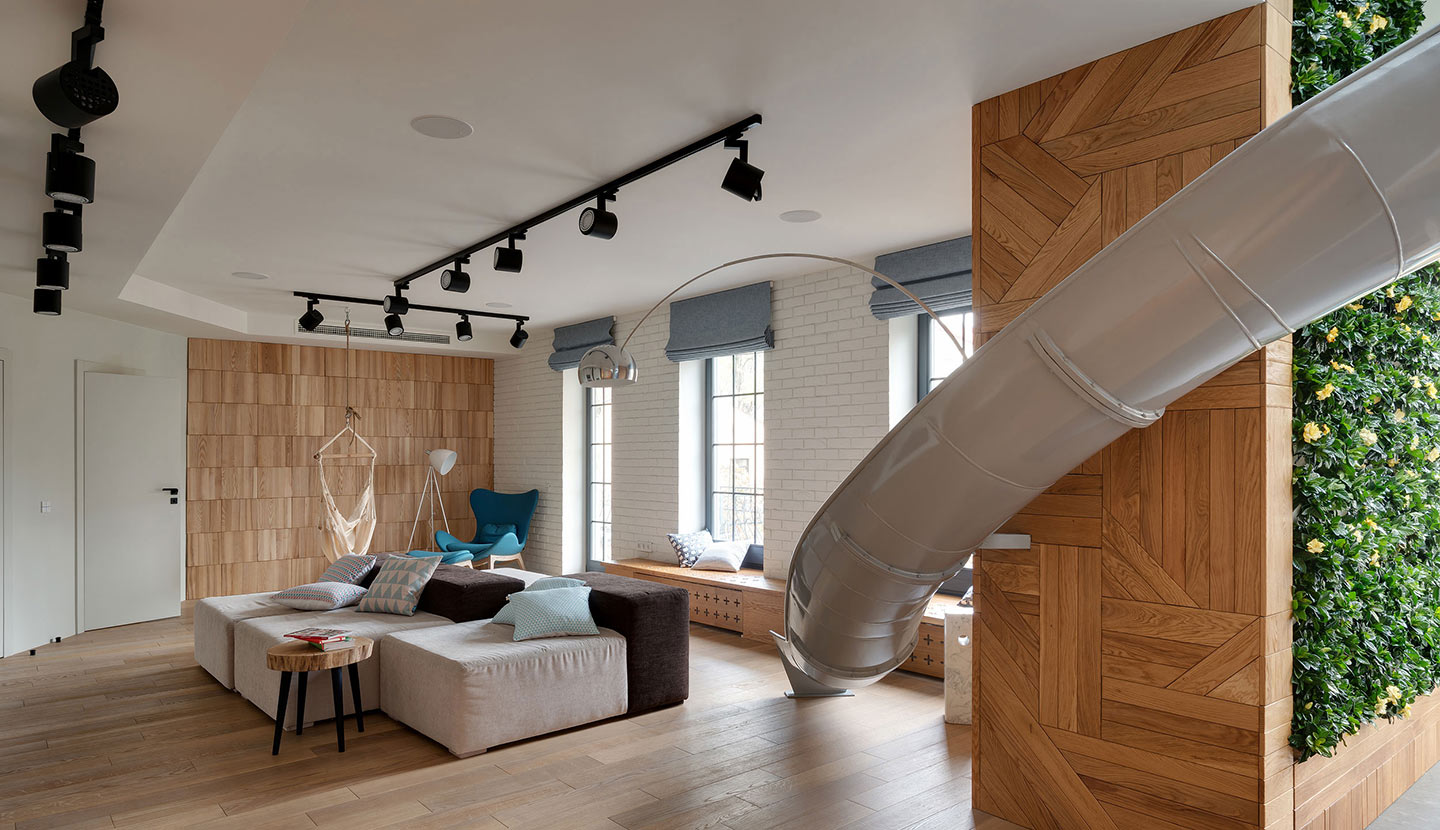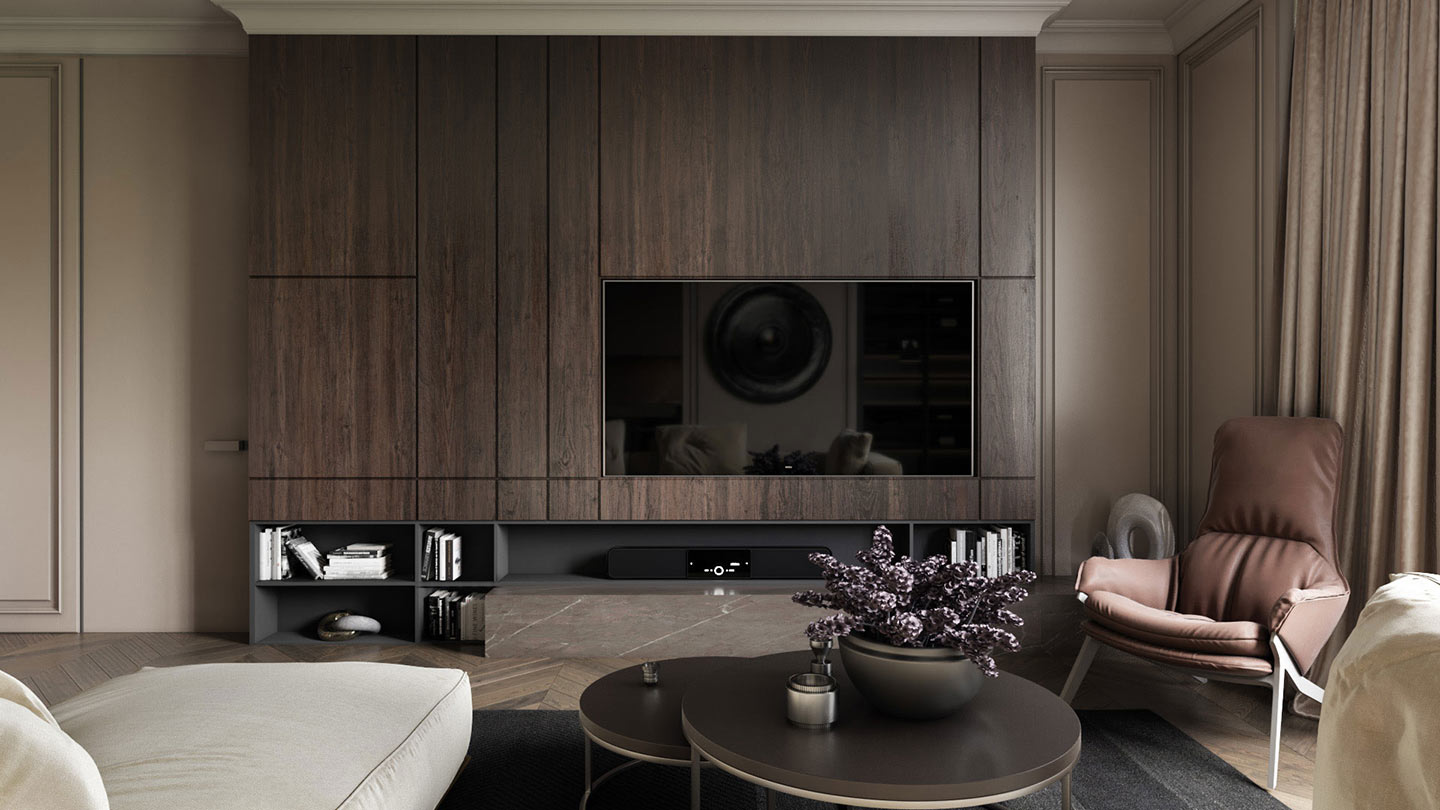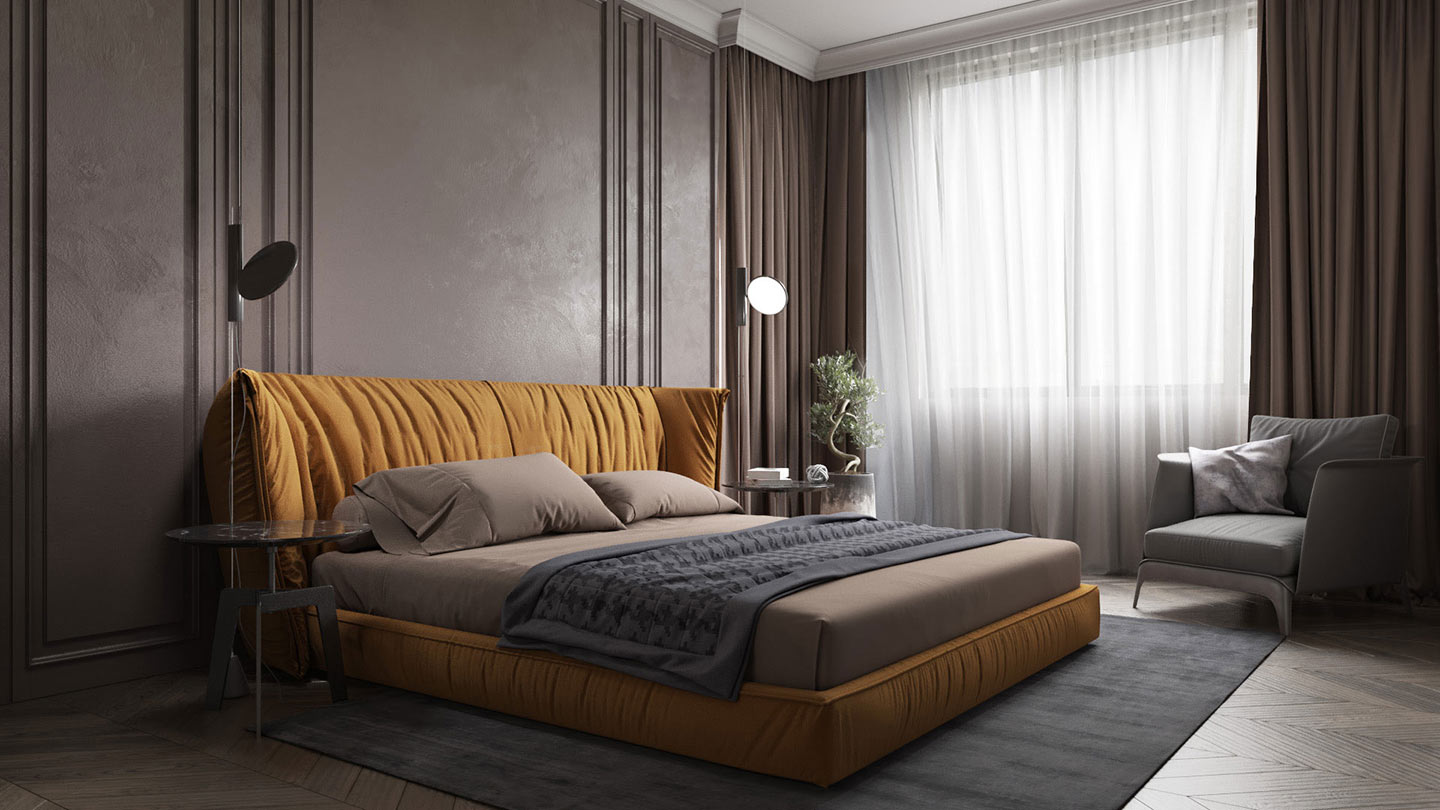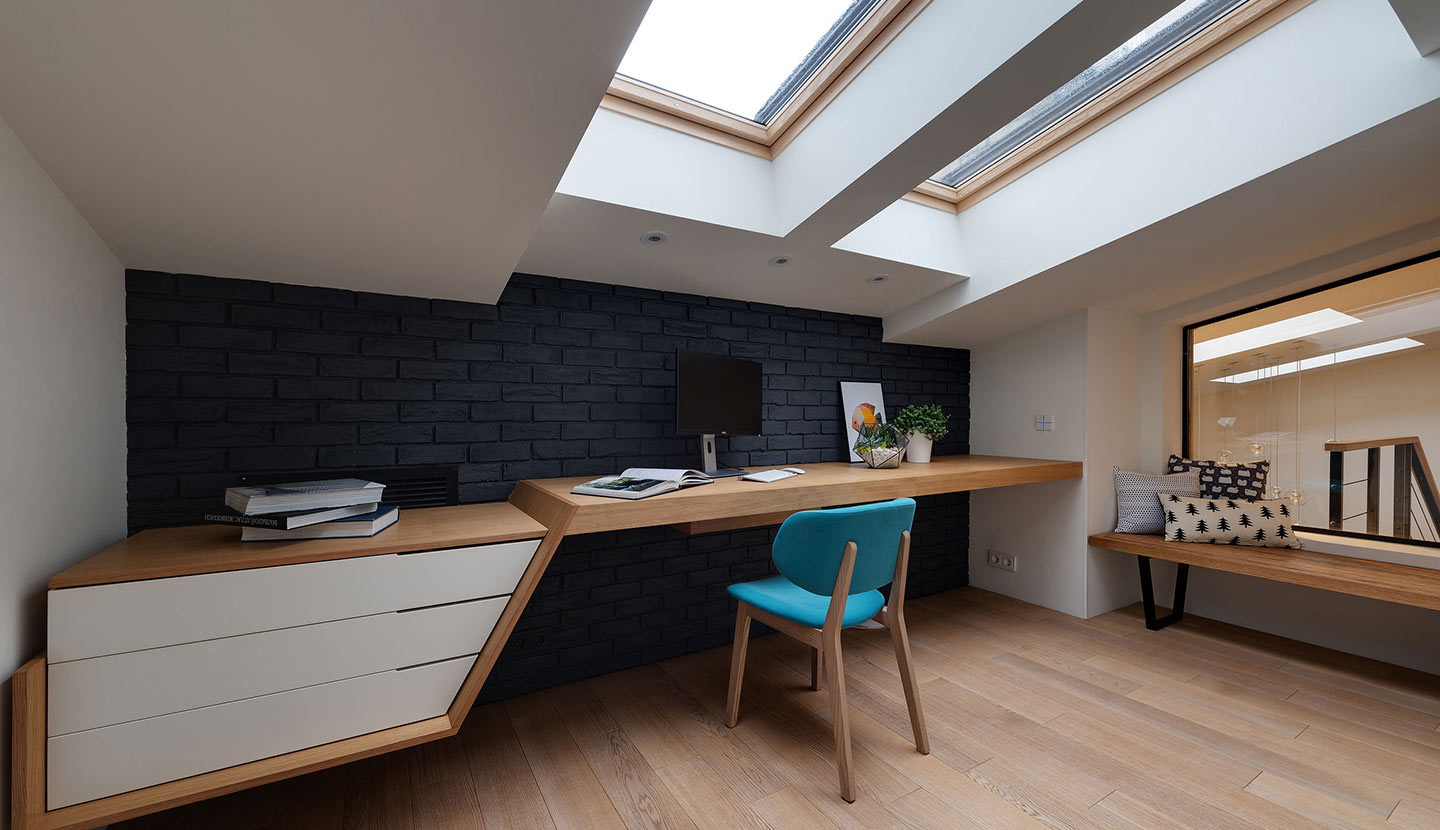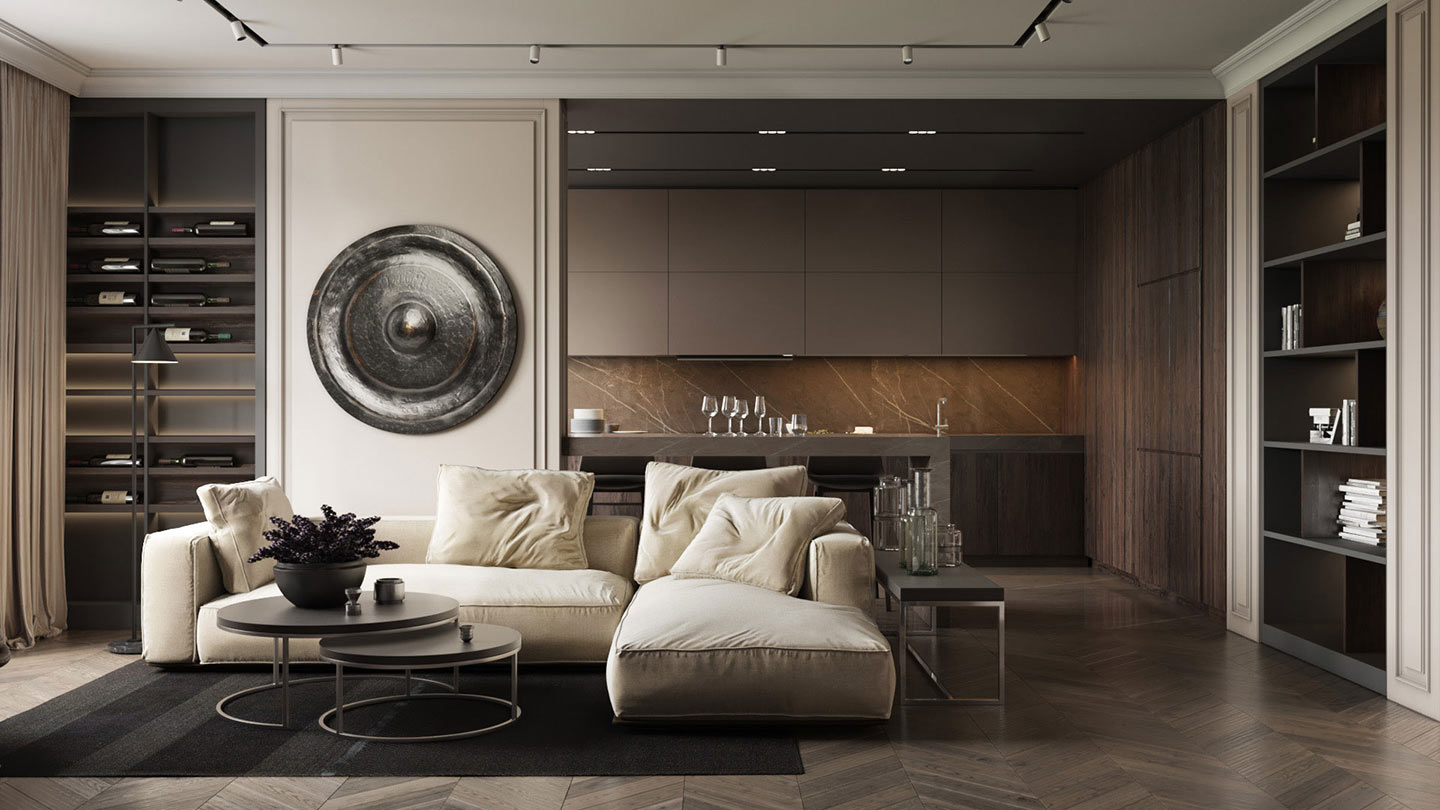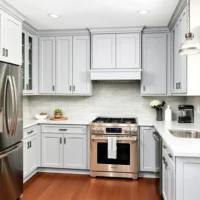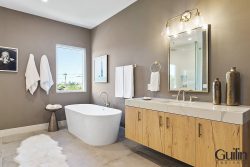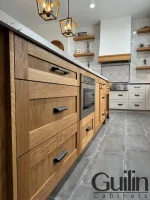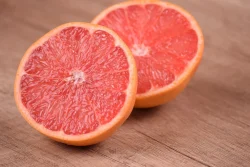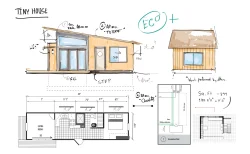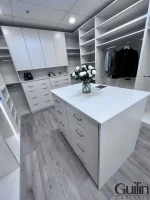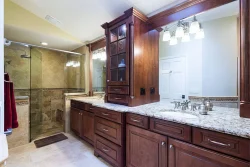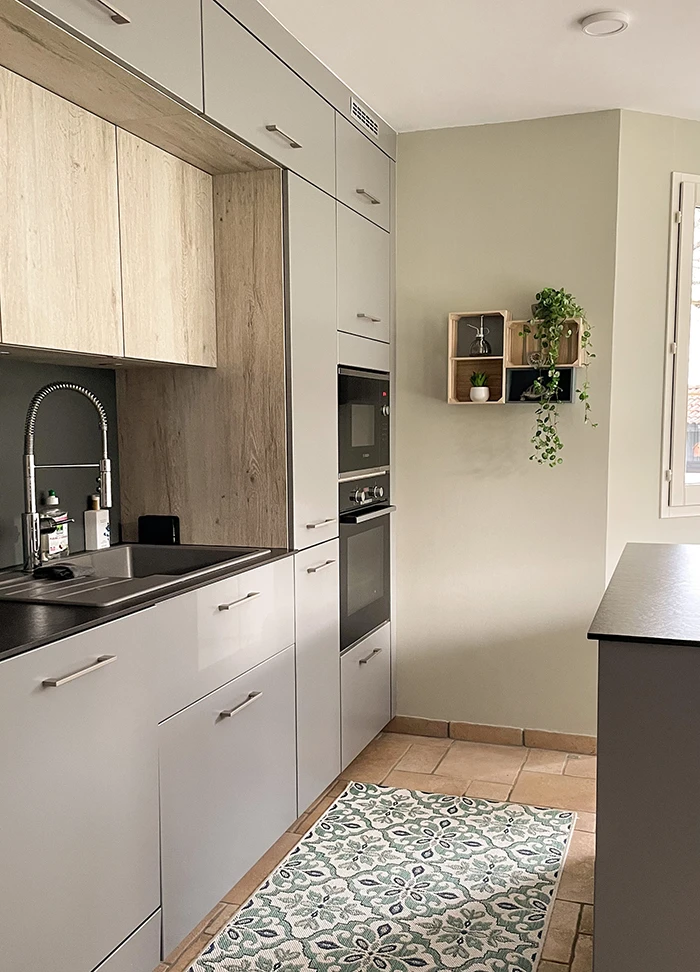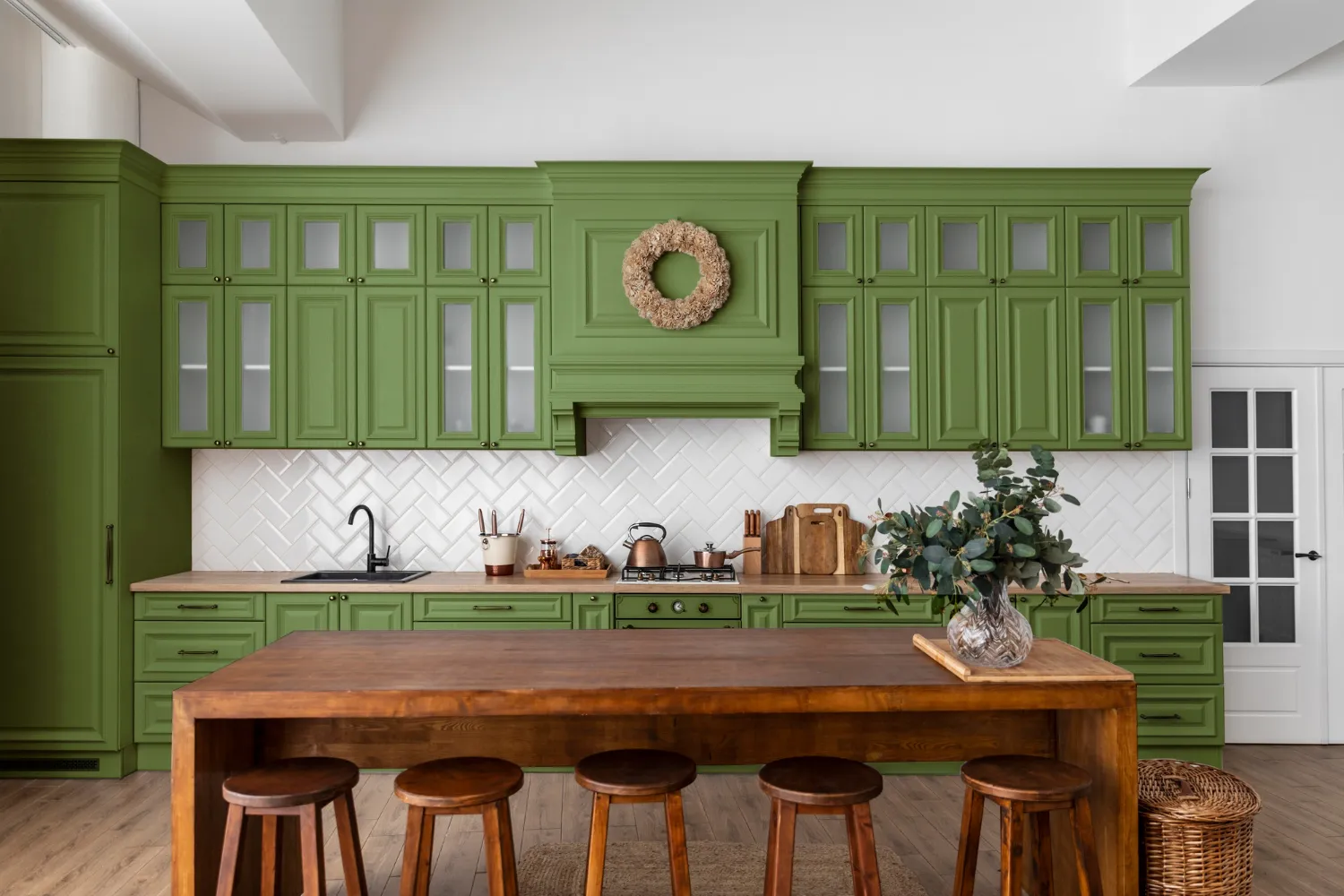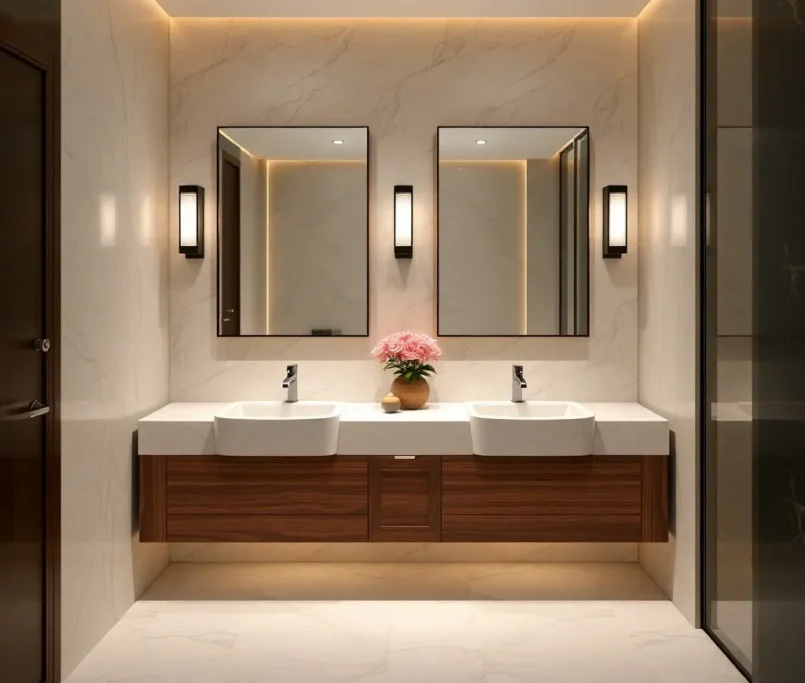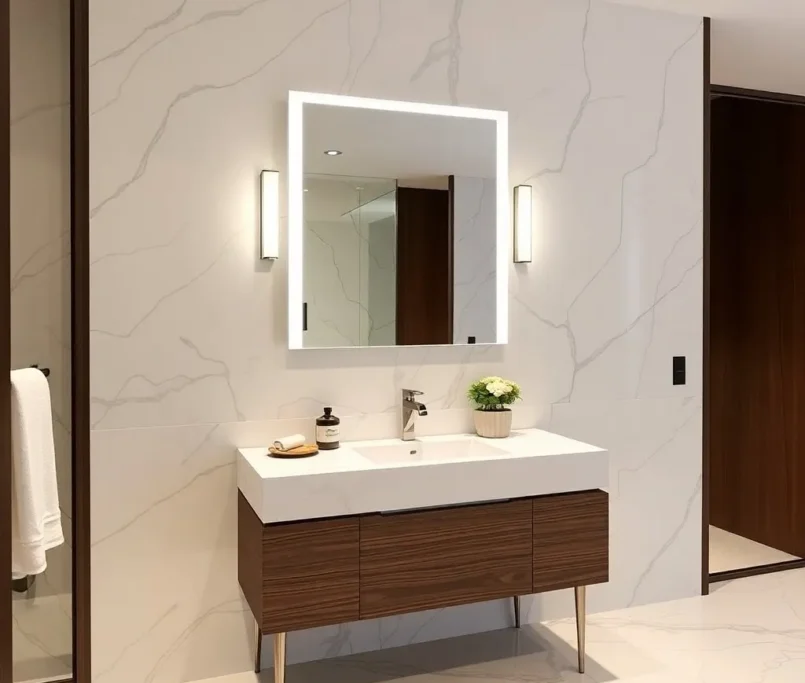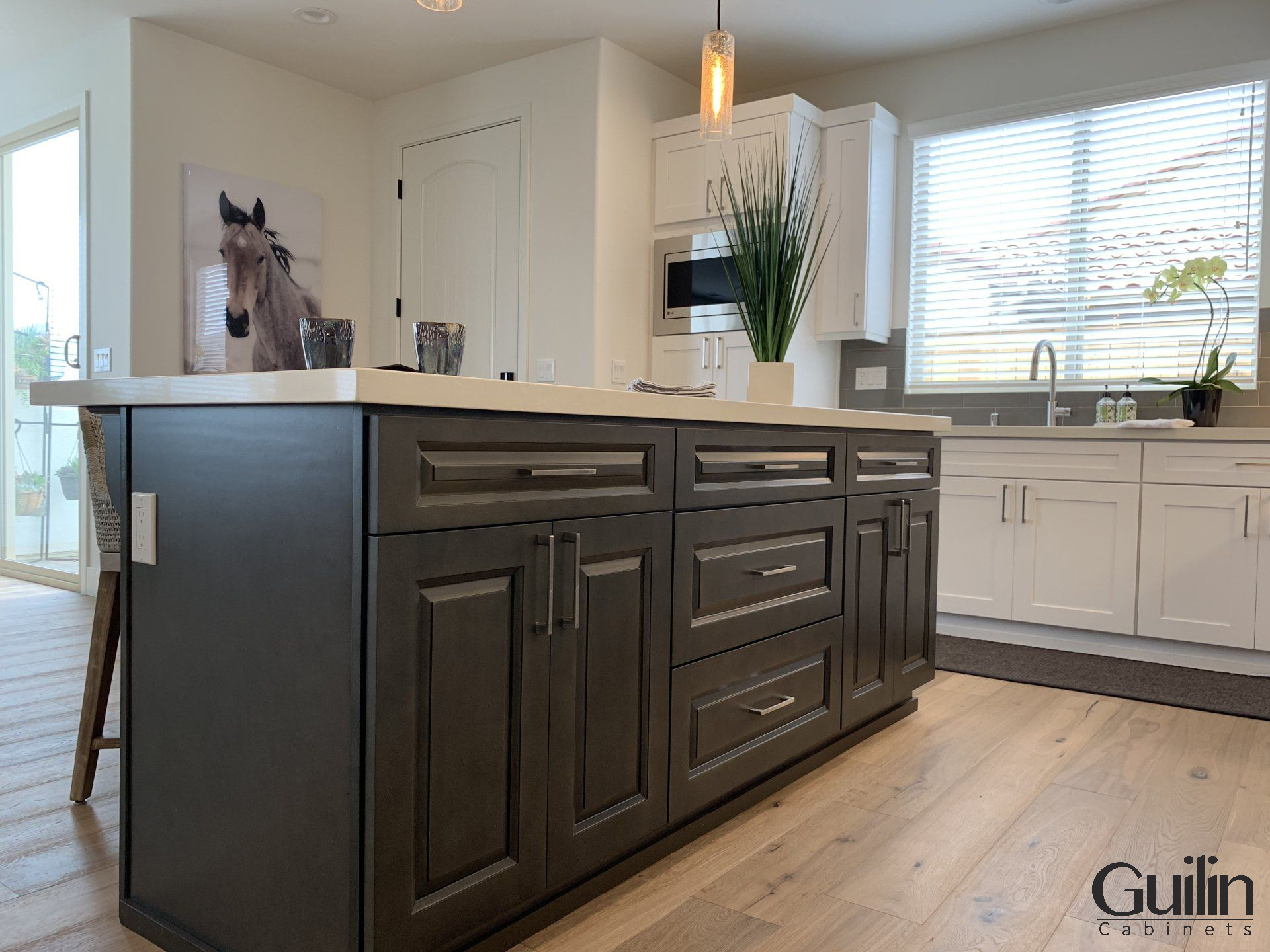
In the eternal debate over kitchen design, the decision between dark or light cabinets stands as a crucial crossroads. Your choice will not only impact the overall aesthetic appeal of your kitchen but also influence the atmosphere and functionality of the space. Each option brings its own set of advantages and considerations, making the decision a pivotal one in your home’s interior design.
Whether you opt for the versatile light hues that offer a sense of spaciousness and cleanliness, or the elegant allure of dark cabinets that exude sophistication and durability, your decision should align with your personality and desired ambiance. With careful consideration of factors such as room size, coordinating colors, and maintenance requirements, you can ensure that your choice of cabinet color enhances the overall appeal of your kitchen, creating a welcoming and harmonious environment for both family and guests.
The Case for Light Kitchen Cabinets
Versatility and Flexibility
Cabinets with a lighter shade offer unparalleled versatility and flexibility in kitchen design. They effortlessly complement a wide range of colors and materials, allowing for easy coordination with various elements in the kitchen. Lighter hues create a sense of expansiveness, making the kitchen feel open and inviting.
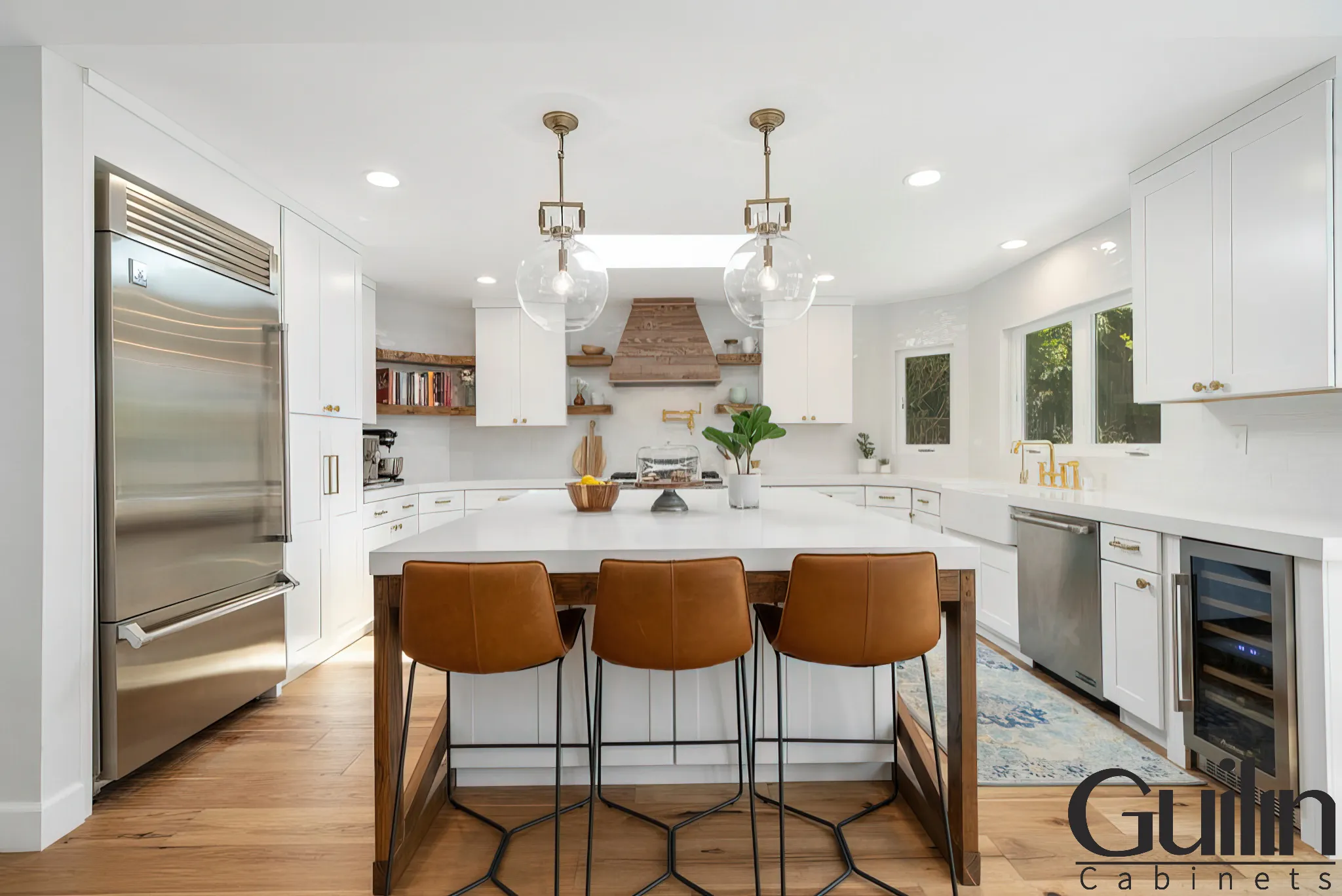
The Optical Illusion of Space
For those looking to create the illusion of a larger kitchen, light cabinets are the ideal choice. Lighter shades reflect light, making the space appear brighter and more spacious. This effect can be particularly beneficial for smaller kitchens, adding a sense of airiness and openness.
=> Related Article: Spiritual Meaning of Colors In Cabinets
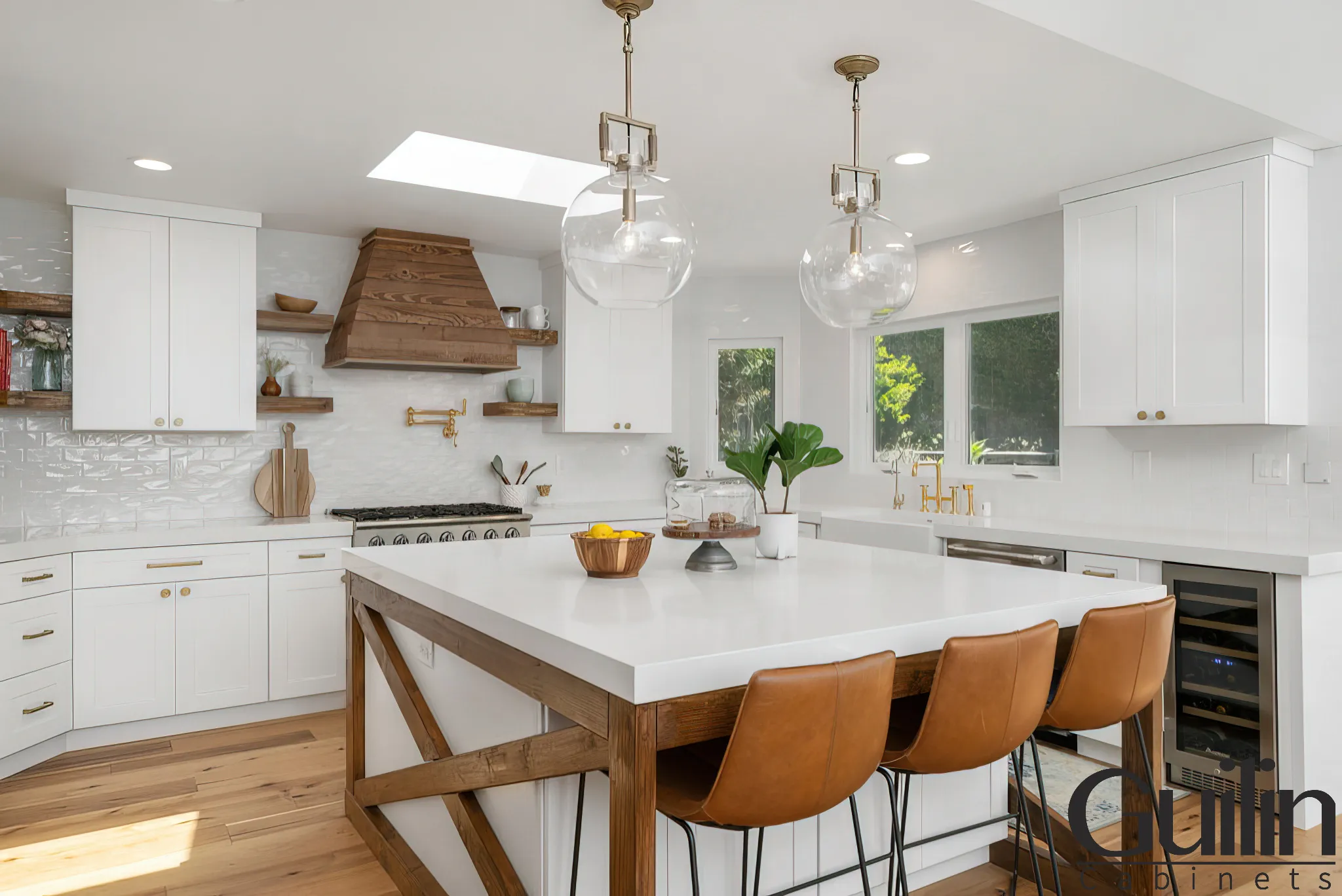
Versatility: Lighter cabinets allow for easy combination with any colors, such as dark countertops or kitchen tables, without creating a somber or heavy look. Light hues also suggest cleanliness and order, necessary qualities of a well-maintained kitchen.
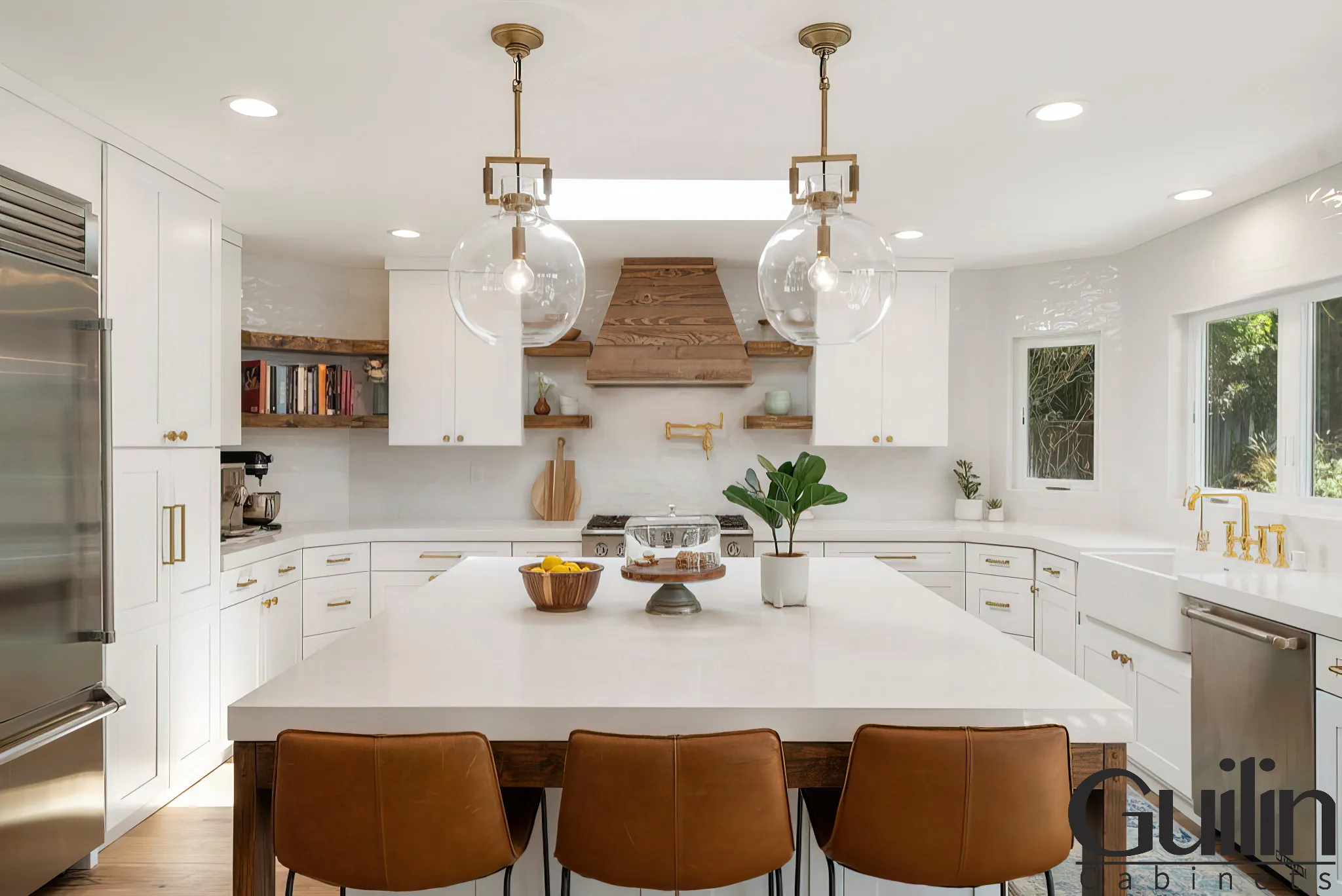
Harmonizing with Colors and Materials
Optical contrast is vital for creating a balanced kitchen design. Light cabinets harmonize effortlessly with a variety of colors and materials, providing a cohesive and visually pleasing aesthetic. By incorporating light cabinetry, you can easily create a harmonious and unified kitchen space.
=> Related Article: What Color Can Kitchen Cabinets Go With Gray Walls?
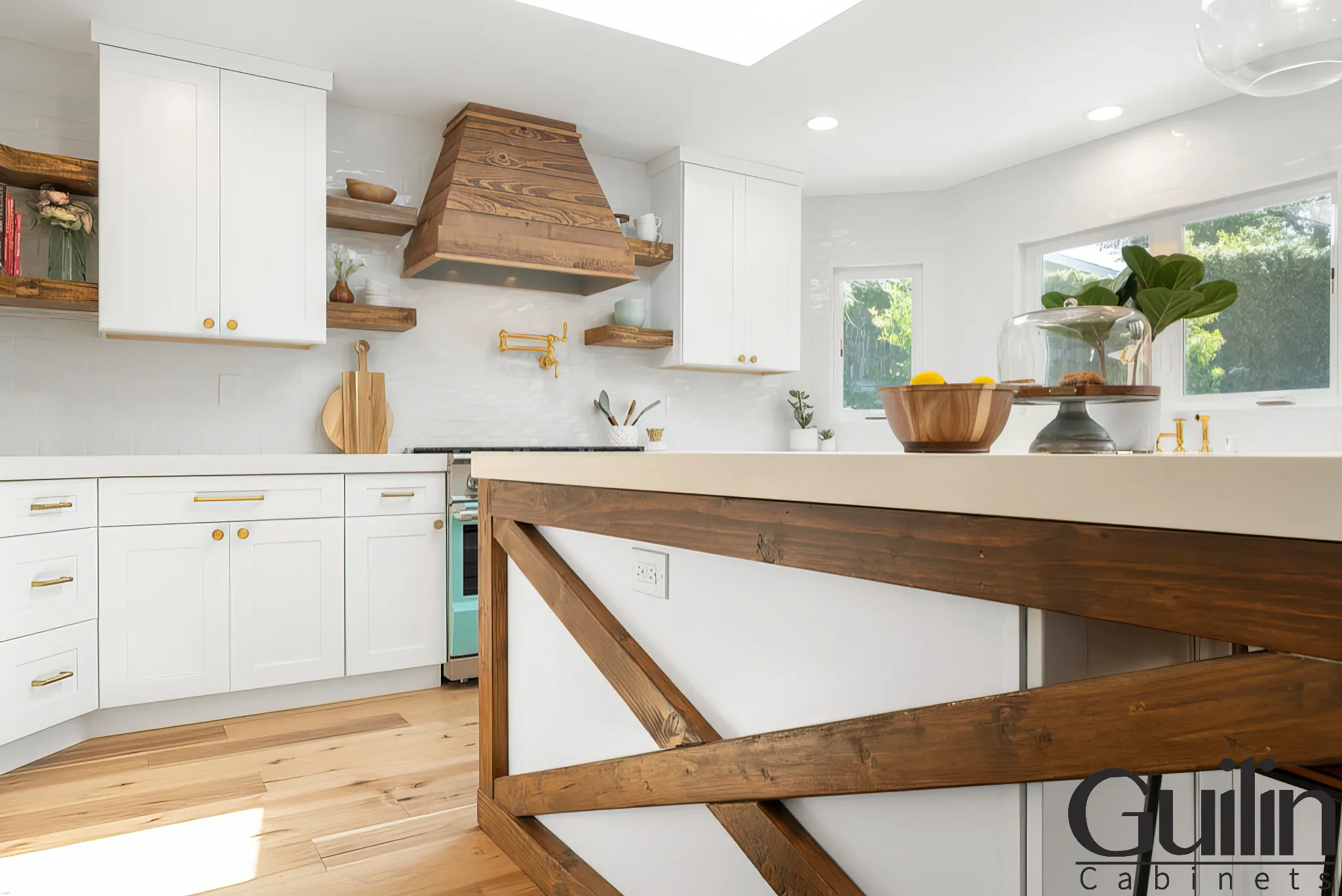
For instance: Light shades of color naturally emit an aura of cleanliness and order, making the kitchen feel like a sanitary and welcoming environment. This psychological impact can enhance the overall atmosphere of the space, creating a positive and inviting ambiance.
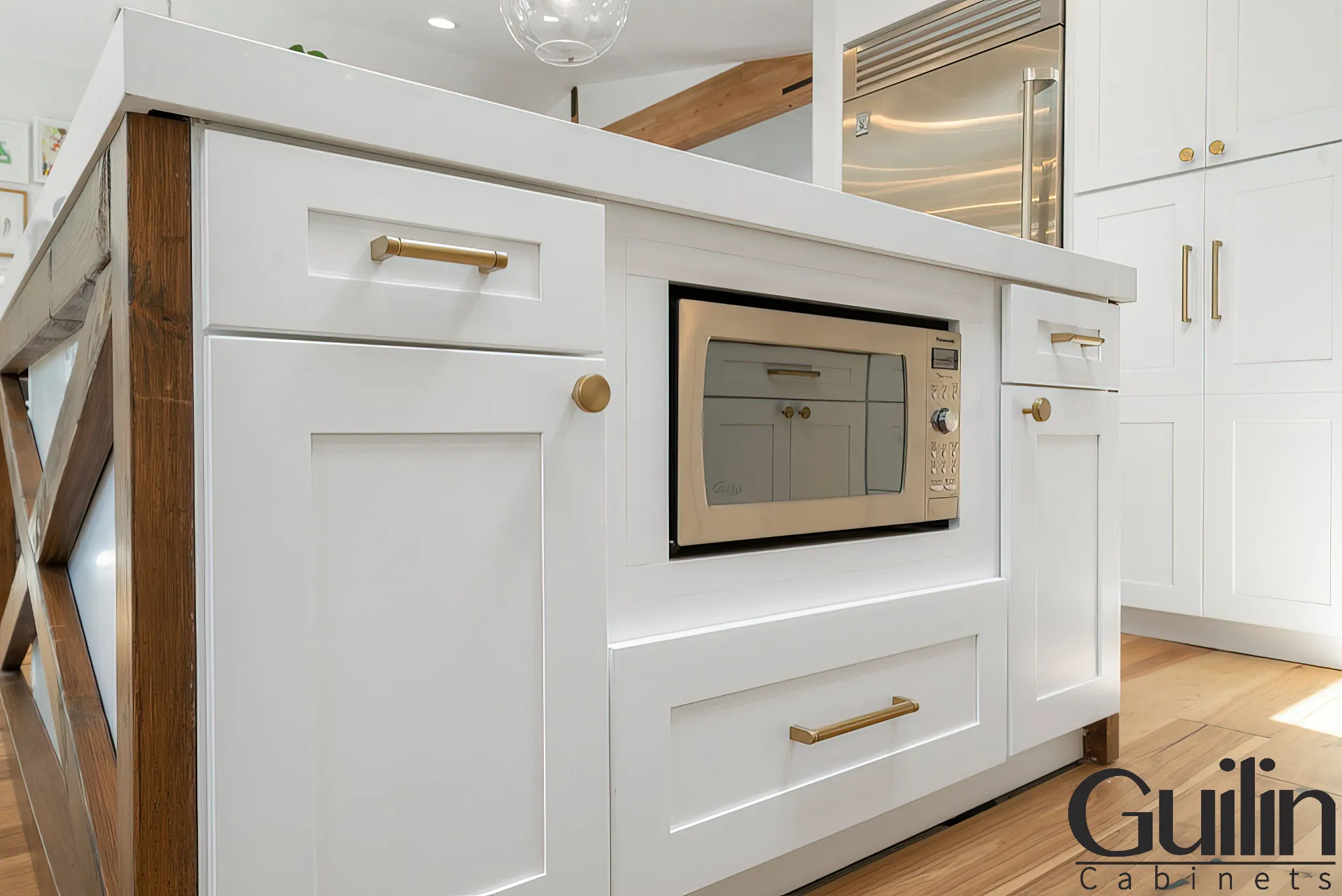
The Psychology of Light Shades
Any kitchen with light cabinets exudes a sense of cleanliness and organization, appealing to guests and inhabitants alike. Lighter hues reflect light, creating a visually appealing space that feels bright and welcoming. The psychology behind light shades in the kitchen can significantly impact the overall mood and ambiance of the room.
=> Related Article: Beautiful Paint Color Ideas For Bathroom Vanity Cabinet
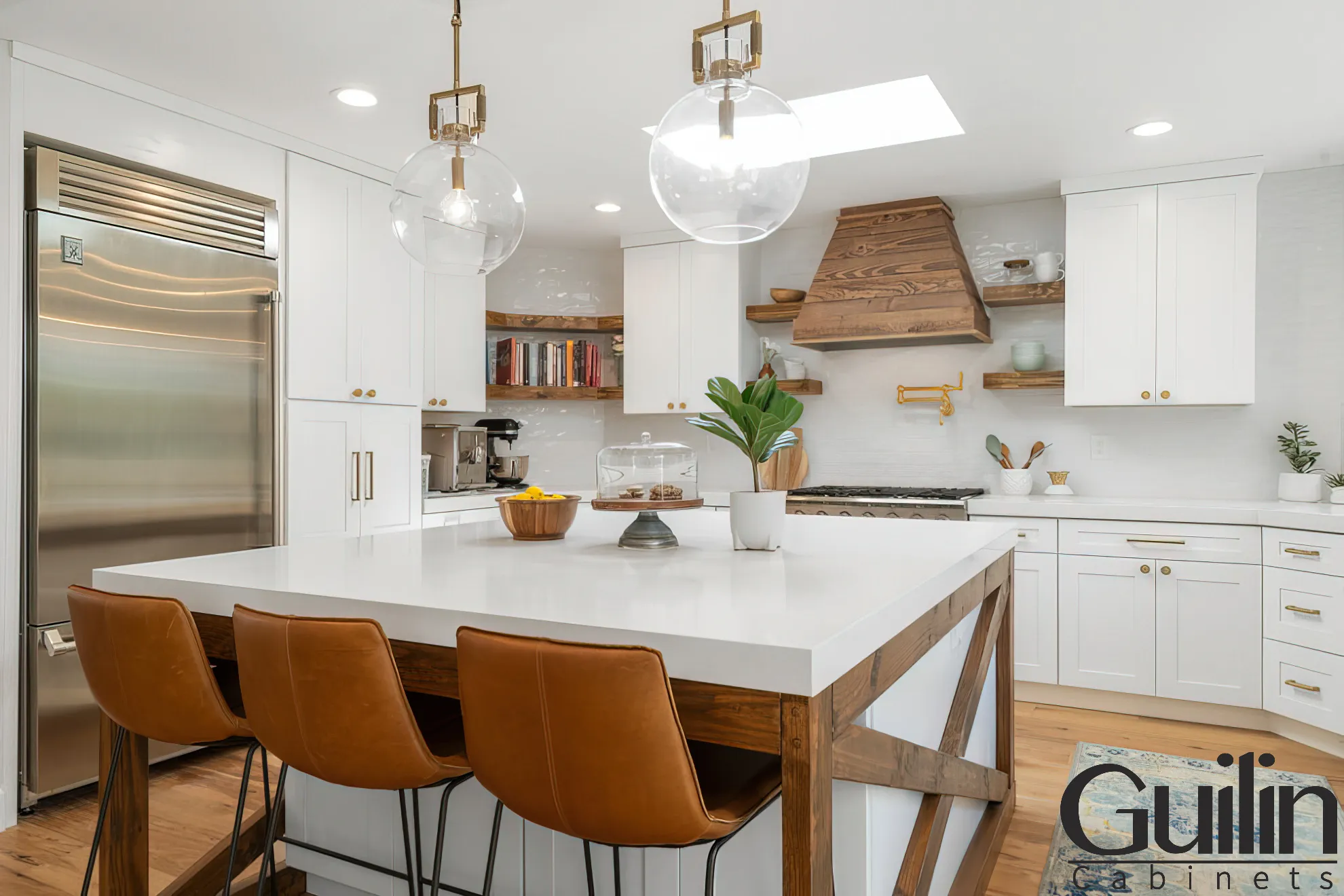
Challenges of Maintaining Light Cabinetry
Challenges: While light cabinets offer numerous benefits, they can also present challenges in terms of maintenance. Lighter shades, particularly whites, may show signs of dirt or wear more easily, requiring regular cleaning and upkeep to maintain their pristine appearance. Additionally, light cabinetry may require more careful consideration when selecting complementary colors and materials to avoid overwhelming the space.
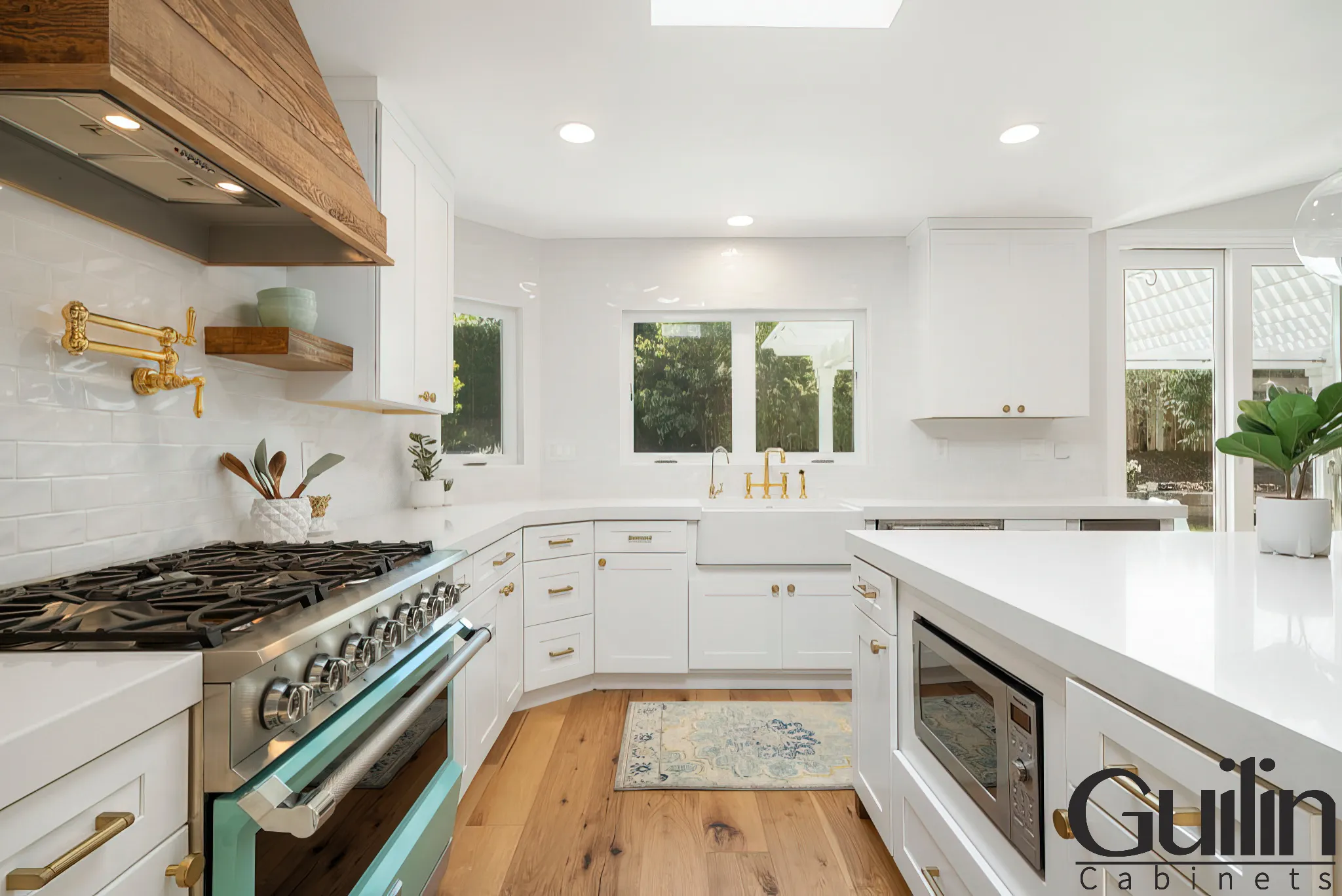
The Charm of Dark Kitchen Cabinets
Elegance and Formality in Design
Cabinets with a dark hue add a touch of elegance and formality to any kitchen design. The deep, rich tones of dark cabinets exude a sense of sophistication, making a statement in the room. Whether paired with sleek, modern countertops or classic, ornate fixtures, dark cabinets can elevate the overall look of the kitchen.
=> Related Article: 7 Colors Combinations Make Your Kitchen Look Stunning
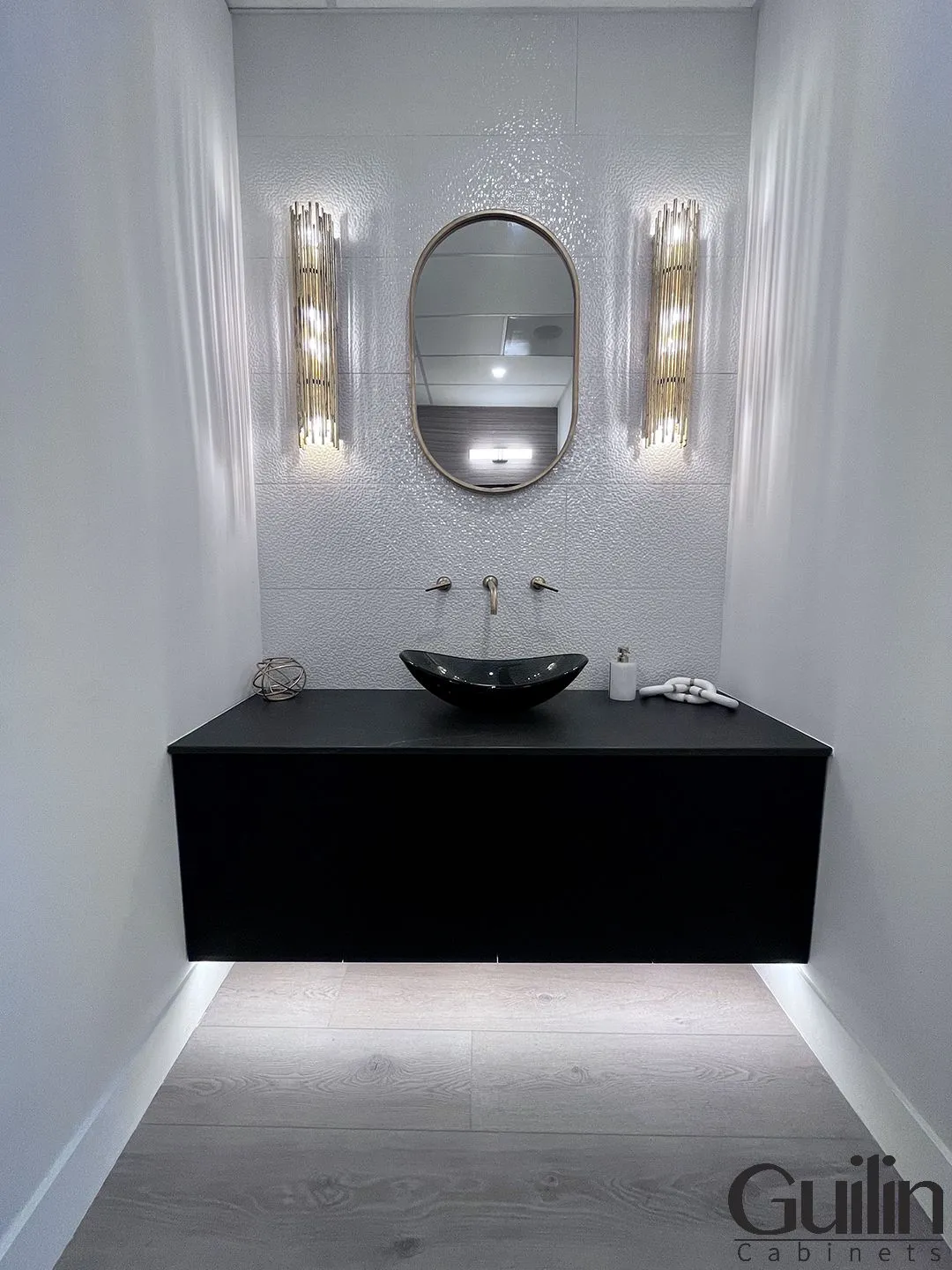
Practical Advantages: Wear and Mess
Cabinets in dark shades have practical advantages when it comes to wear and mess. Dark colors are less likely to show signs of wear and tear, making them a durable choice for long-lasting cabinets. Additionally, dark cabinets are more forgiving when it comes to hiding messes and spills, maintaining a clean and polished appearance with less maintenance.
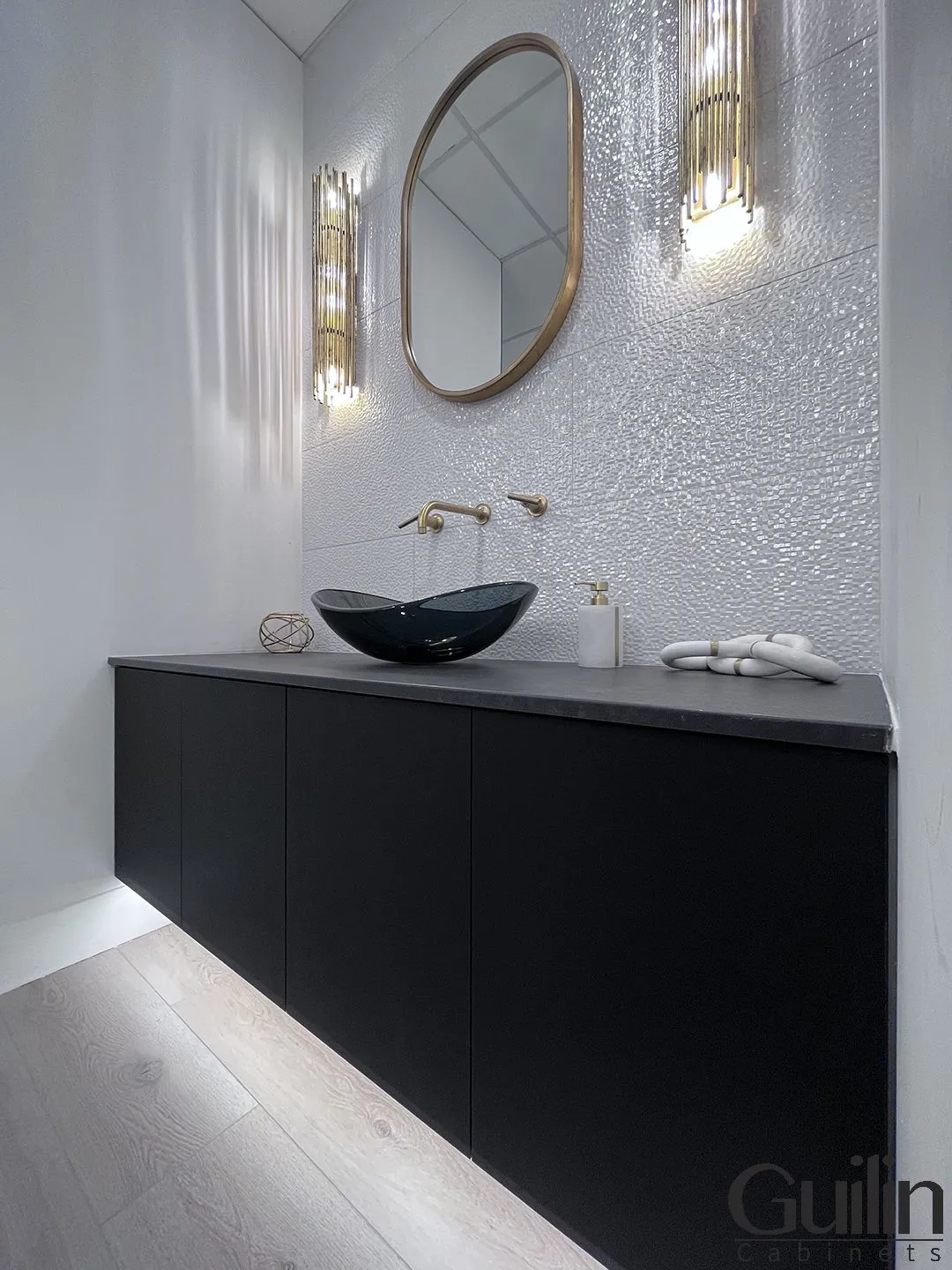
Plus, dark cabinets can create a striking contrast with lighter elements in the kitchen, such as countertops or backsplashes, adding depth and visual interest to the space.
Coordinating with Your Kitchen’s Environment
Cabinets in dark hues can be effectively coordinated with the rest of your kitchen’s environment to create a cohesive and impactful design. When choosing dark cabinets, consider the size of the room and the color palette of other elements in the space to ensure a balanced and harmonious look.
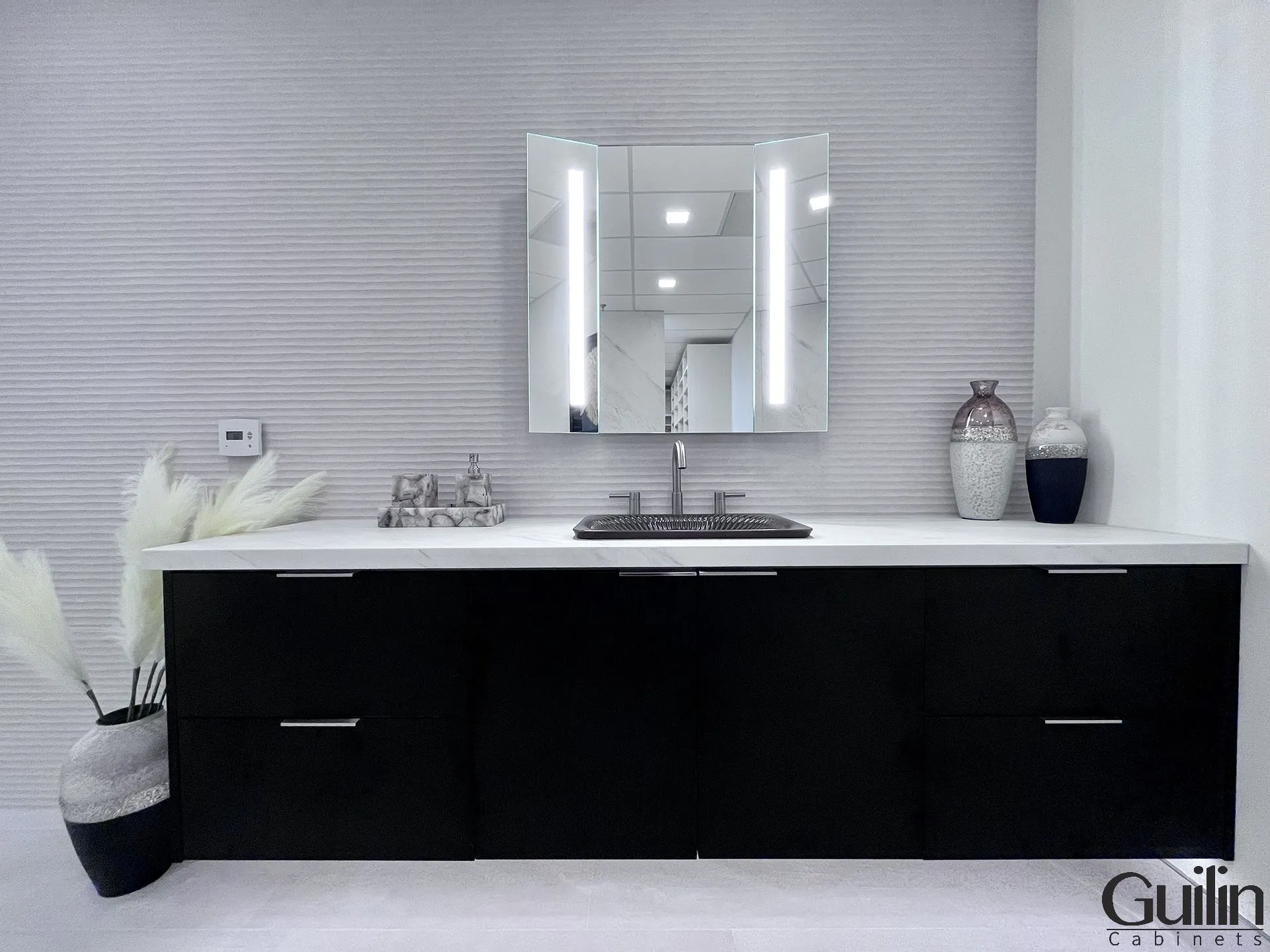
With careful planning and a thoughtful selection of complementary colors and materials, dark cabinets can enhance the overall aesthetic of your kitchen, creating a stylish and inviting atmosphere.
Mitigating the Risks of a Smaller-Looking Space
Space concerns when opting for dark cabinets can be mitigated by incorporating strategic design elements. Lighter countertops, backsplashes, or flooring can help balance out the darkness of the cabinets, creating an illusion of a larger, more open kitchen. Additionally, ample lighting sources and mirrors can further enhance the perceived size of the room, counteracting any potential drawbacks of dark cabinetry.
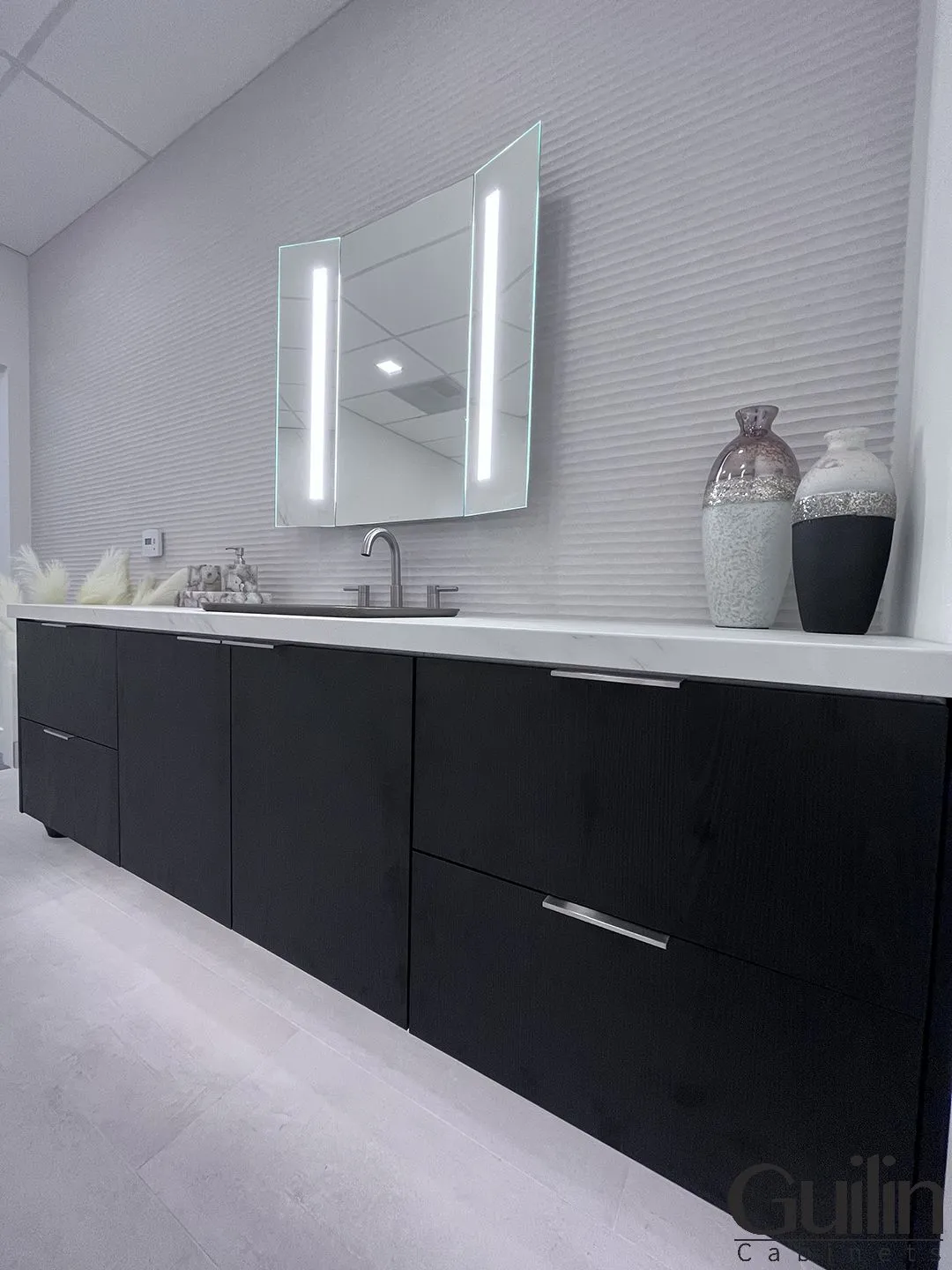
Expert Design Strategies
Size and Lighting
Whether you go with light or dark cabinetry is heavily dependent on factors like lighting and room size. When you have a lot of natural light streaming into your kitchen, dark cabinets will make it feel cozier, but light cabinets will make a tiny kitchen seem more open. Think about how much light comes into your kitchen from windows before you make a choice.
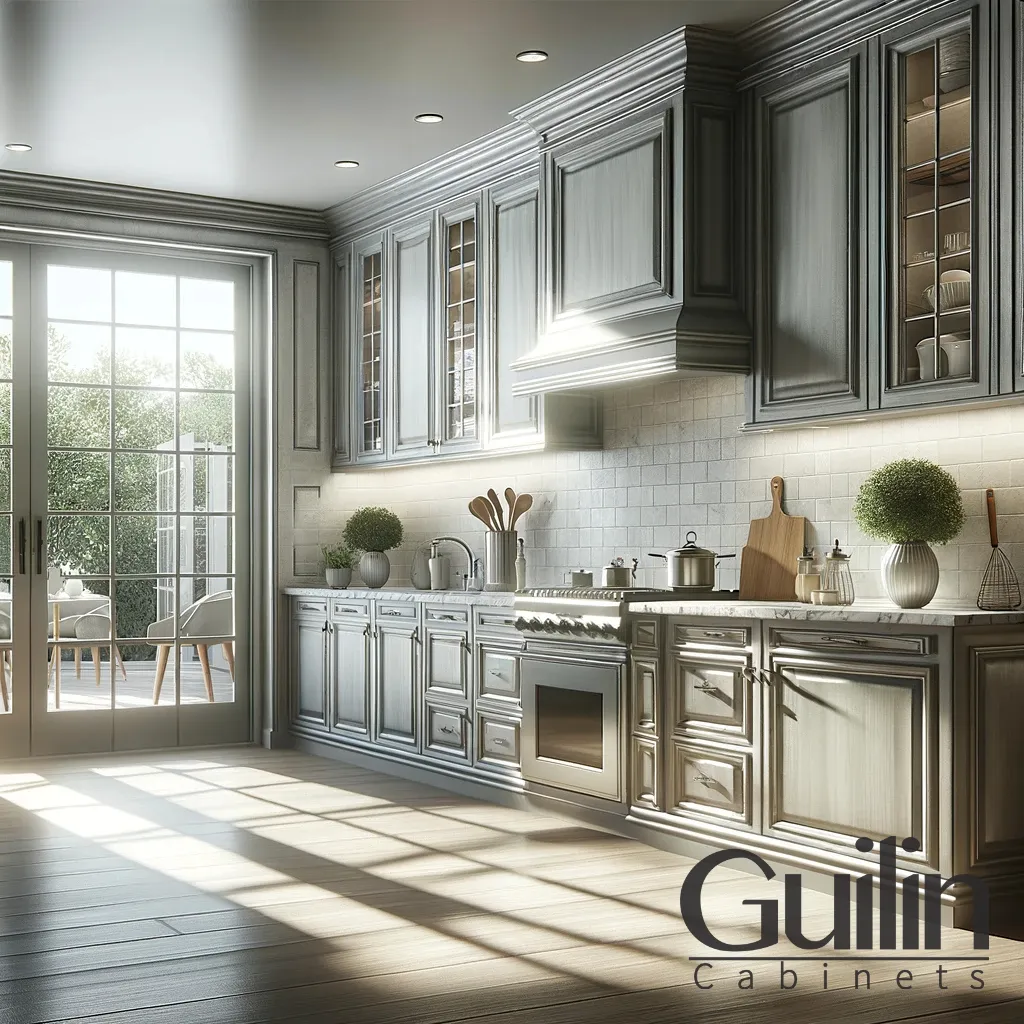
Color Coordination with Walls and Flooring
An important consideration when choosing between light and dark cabinets is how well they will coordinate with your walls and flooring. Light cabinets can make a room feel airy and bright, while dark cabinets can create a cozy, intimate atmosphere. Take into account the overall color scheme of your kitchen to ensure a cohesive look.
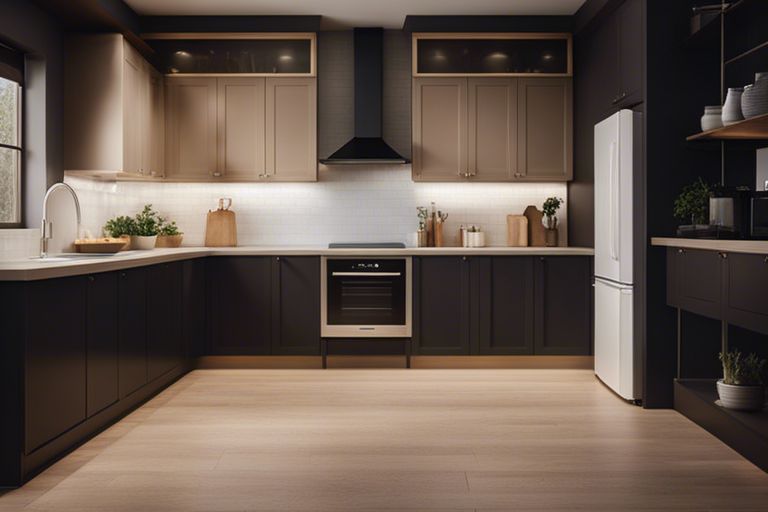
Another factor to consider is the contrast between your cabinets, walls, and flooring. Opting for a light color palette throughout can create a seamless, harmonious feel, while mixing light and dark elements can add depth and visual interest to the space.
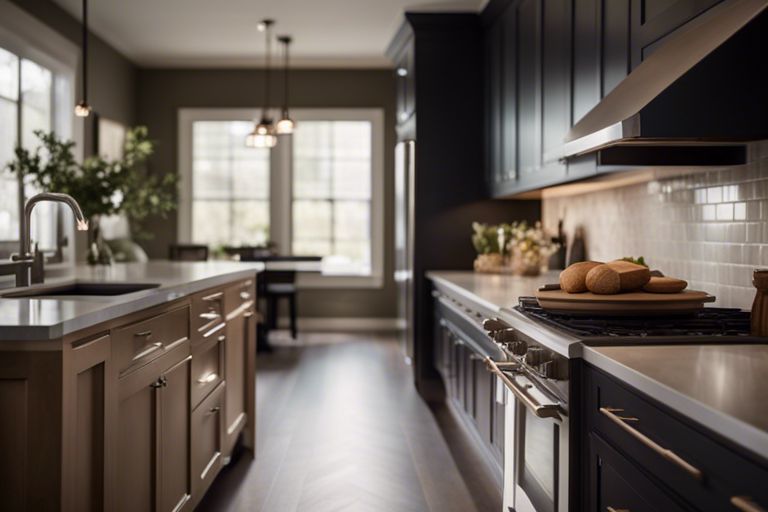
The Role of Trends vs. Timeless Design
Whether you’re going for a classic, evergreen style or one that’s more in line with current trends should be your guiding principle when choosing between light and dark cabinets. Contrasting with dark cabinets, which may bring an air of drama and refinement to a kitchen, light cabinets are typically thought of as classic and everlasting. Think about how much more vital it is for you to have a kitchen that incorporates the most recent color trends or one that will be timeless and beautiful.
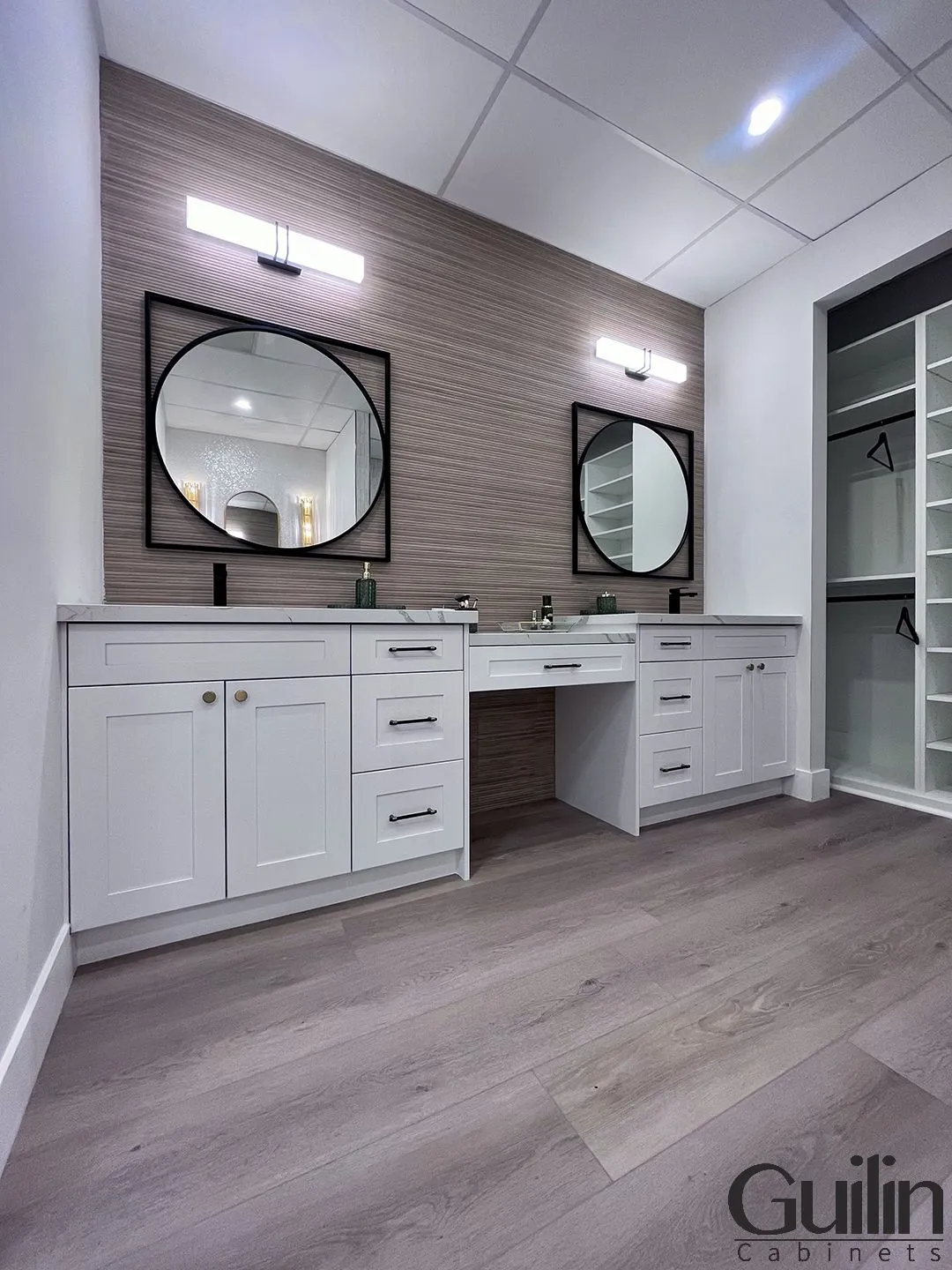
Strategies in modern kitchen cabinetry have shifted towards minimalistic designs with a focus on clean lines and sleek finishes. The use of innovative materials such as metallic accents and textured finishes is gaining popularity. Integrated smart storage solutions and hidden compartments provide a clutter-free appearance and enhanced functionality. Understanding the latest trends in kitchen cabinetry can help you make informed decisions in creating a modern and efficient kitchen space.
Effect on Home Resale Value
Think about how the color of your cabinets will affect your home’s resale value before making a final decision. Because they give the illusion of greater space, light-colored cabinets are often a buyer favorite, especially for smaller kitchens. While dark cabinetry can give a room an air of sophistication, it might not be suitable for everyone.
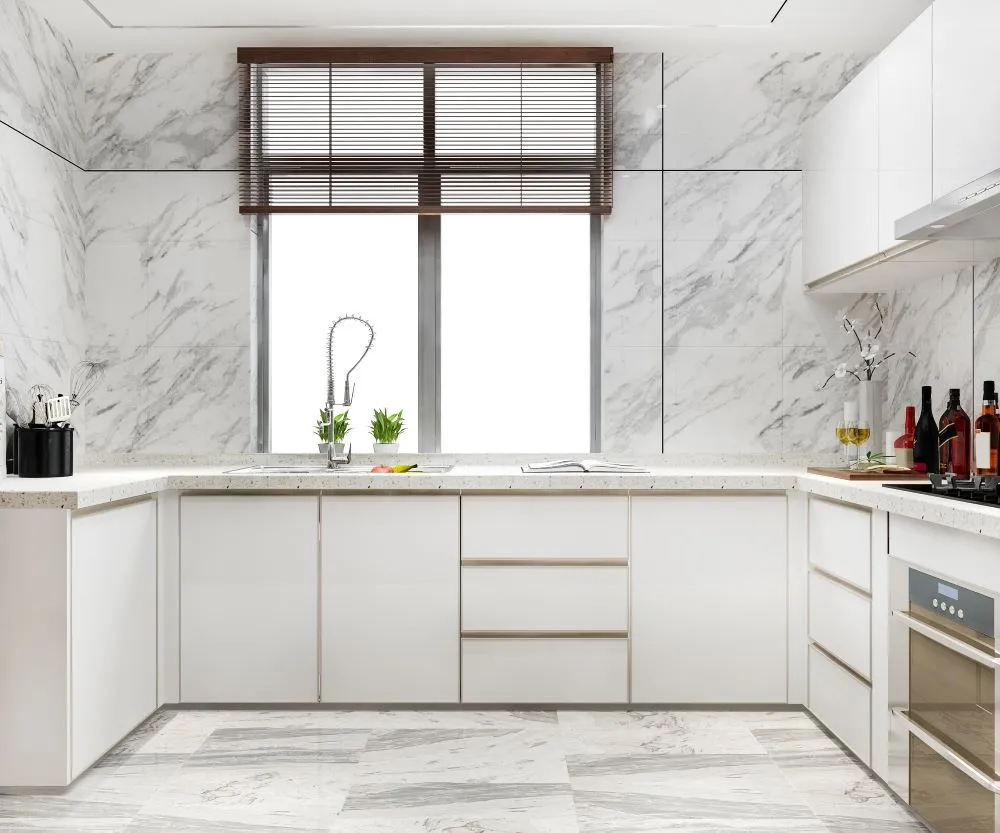
This can significantly affect your home’s resale value, as the kitchen is a key selling point for many homebuyers. So, if you are planning to sell your home in the near future, it may be wise to opt for light cabinets to attract more potential buyers.
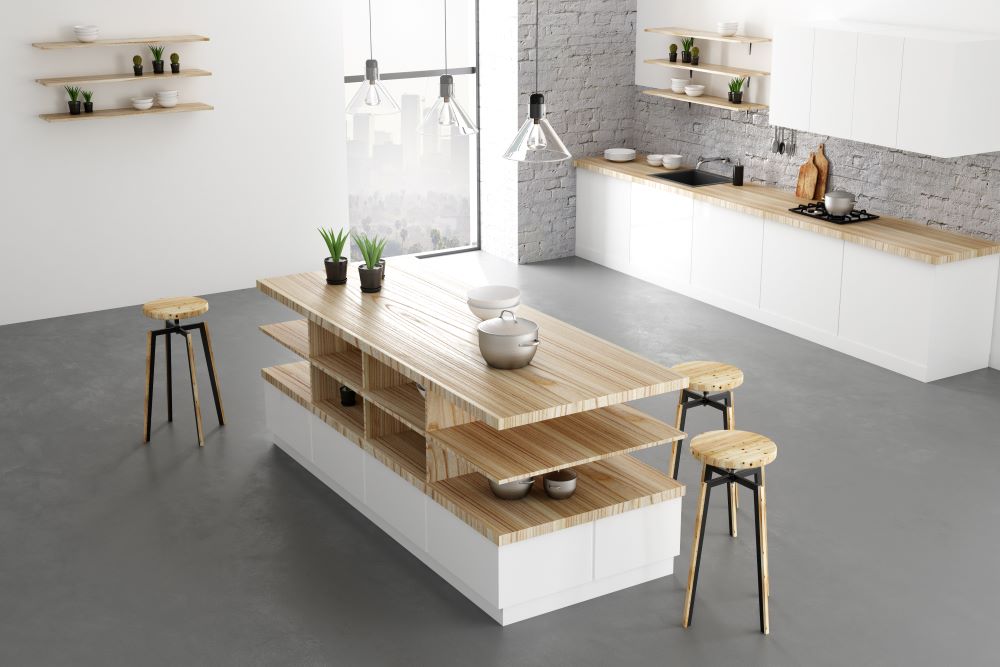
Tips from Professional Kitchen Designers
Your kitchen cabinets play a crucial role in the overall design of your kitchen. When seeking advice from professional kitchen designers, they often recommend focusing on both aesthetics and functionality. Consider factors such as layout, storage needs, and the overall style you want to achieve. Prioritize quality materials and efficient designs to ensure your cabinets stand the test of time. Thorough planning and attention to detail are key to creating a cohesive and visually appealing kitchen space. However, always remember that functionality should never be sacrificed for style.
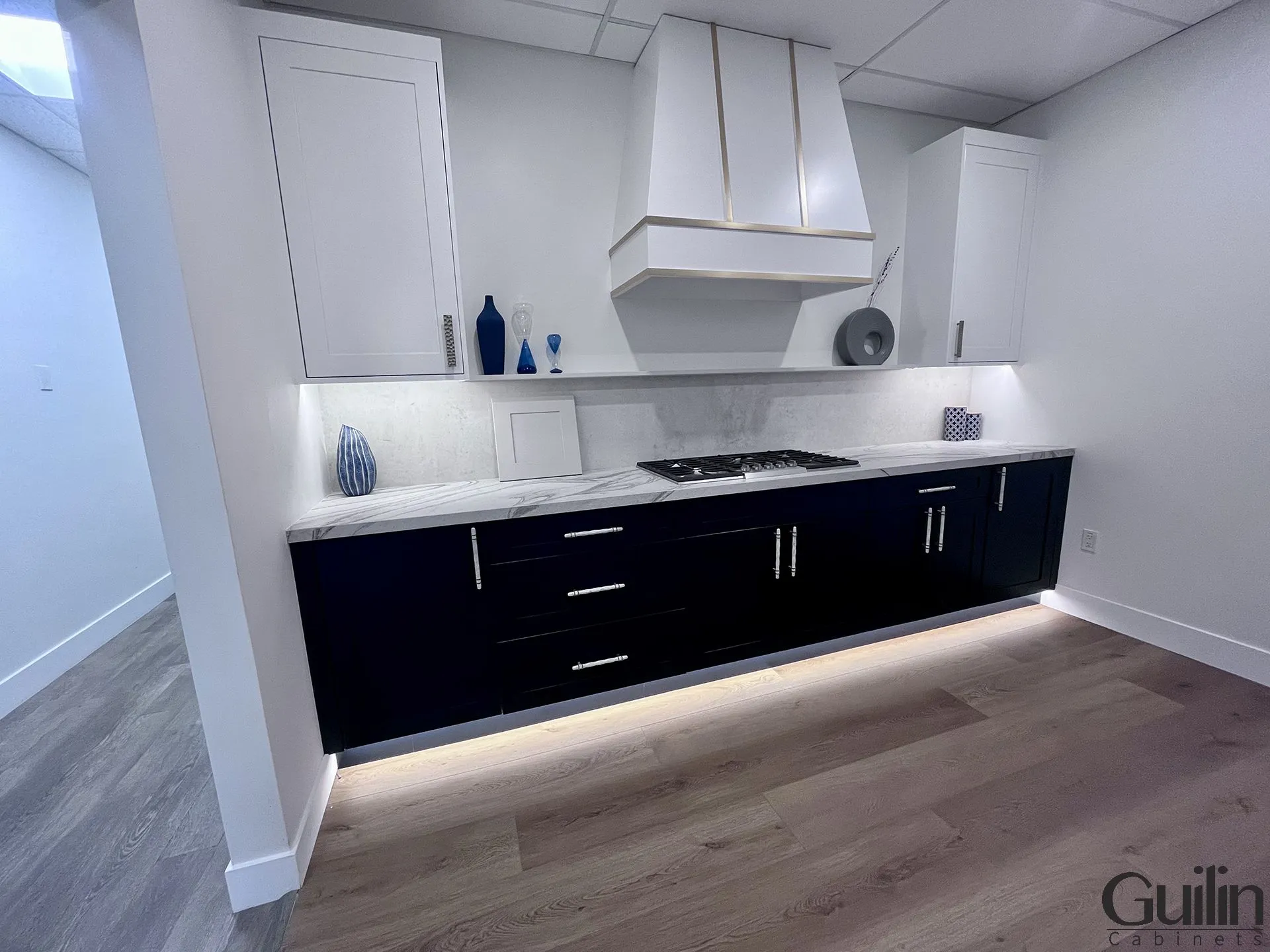
Whether you choose light or dark cabinets, remember that they are just one element of your kitchen design. It is imperative to consider the size of the room, the color scheme of your walls and furnishings, and how the cabinets will fit into the overall ambiance of your kitchen.
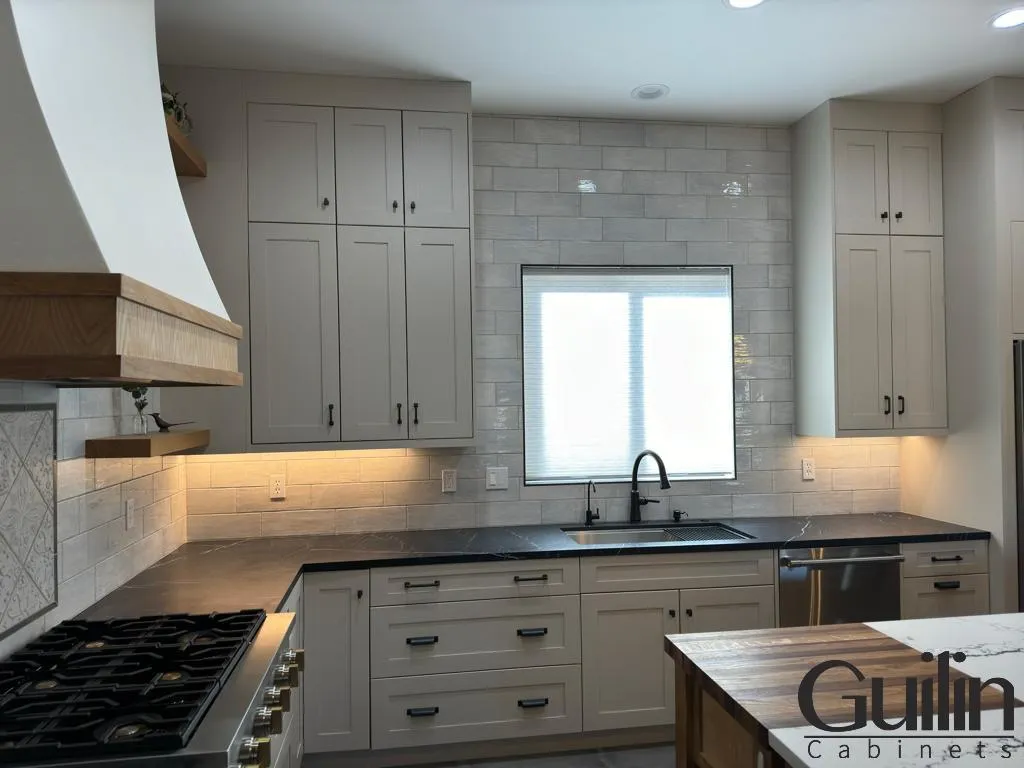
In Conclusion
In the end, it all comes down to taste and the overall look you’re going for when deciding between dark and light kitchen cabinet colors. Cabinets painted a lighter color have a way of bringing in more natural light and creating the illusion of more space. They offer a classic look that can be effortlessly updated with new decor styles, and they’re also easier to clean. Contrarily, dark cabinets might make a kitchen seem more intimate, but they also lend warmth, refinement, and opulence to a larger room. Although they are more work to keep looking good, the correct combination of design components may really bring out their bold side.
FAQs Light vs Dark Kitchen Cabinet Colors
What are the key differences between light and dark kitchen cabinet colors?
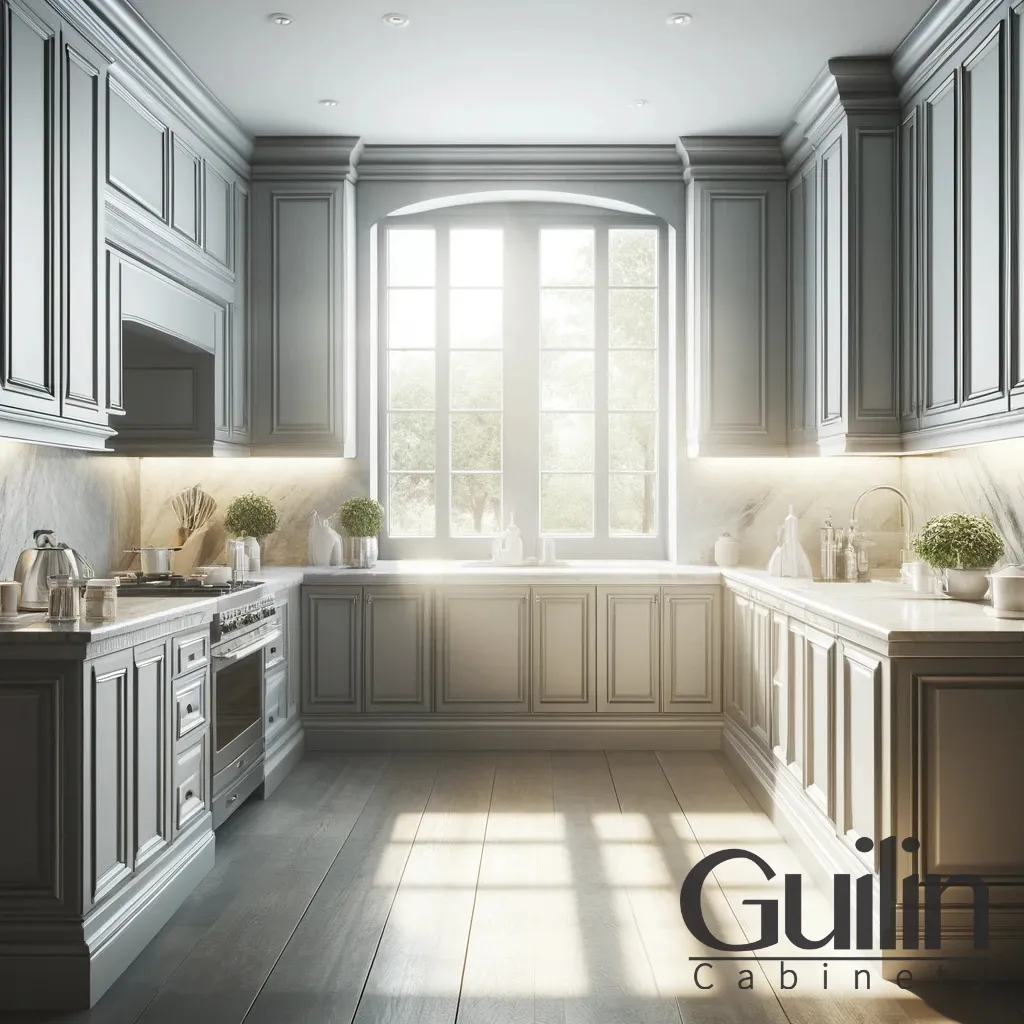
Light kitchen cabinet colors tend to make a space feel more open and bright, while dark colors can create a cozy, intimate atmosphere.
How do light kitchen cabinet colors affect the perception of space?

Light colors can make a kitchen feel larger and more spacious by reflecting light and creating an airy atmosphere.
In what ways can dark kitchen cabinet colors impact the mood of a kitchen?
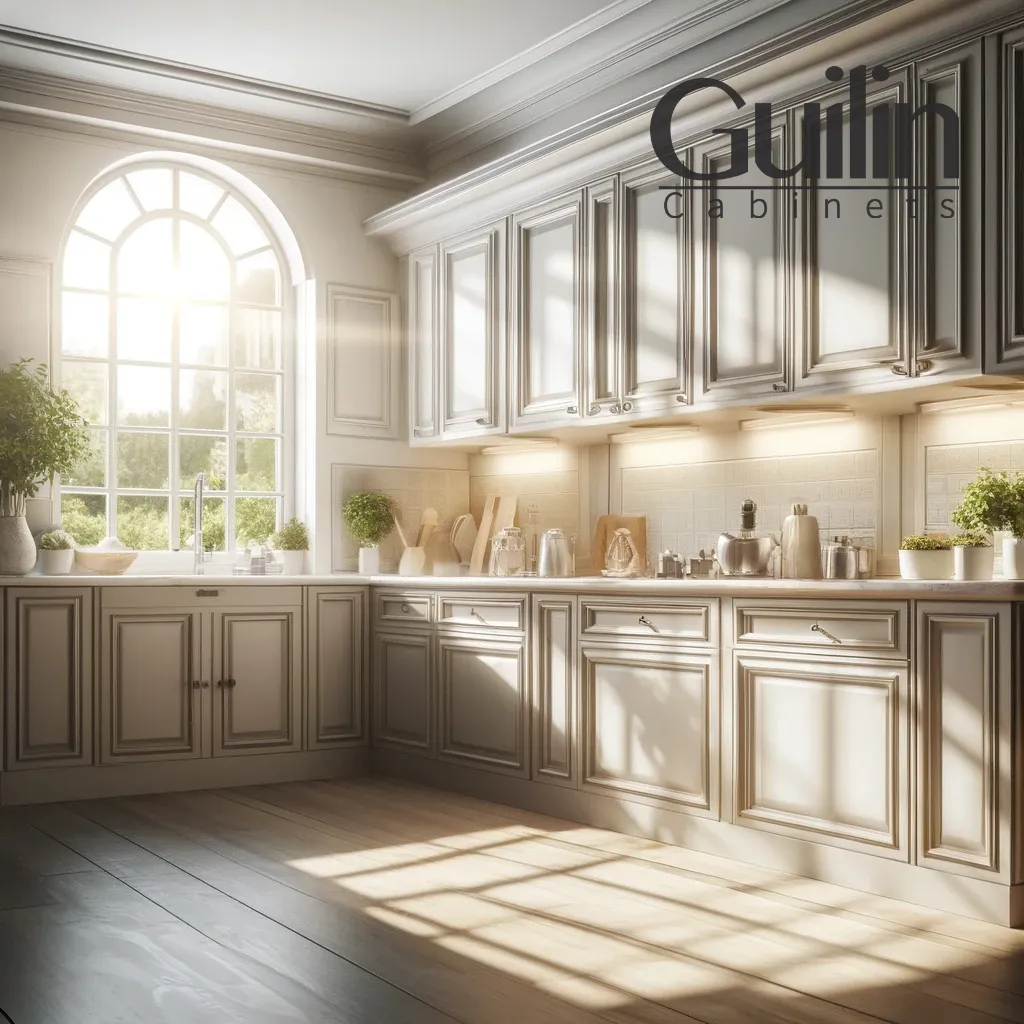
Dark cabinet colors can evoke a sense of sophistication, warmth, and intimacy in a kitchen space.
What should I consider when choosing between light and dark kitchen cabinet colors?
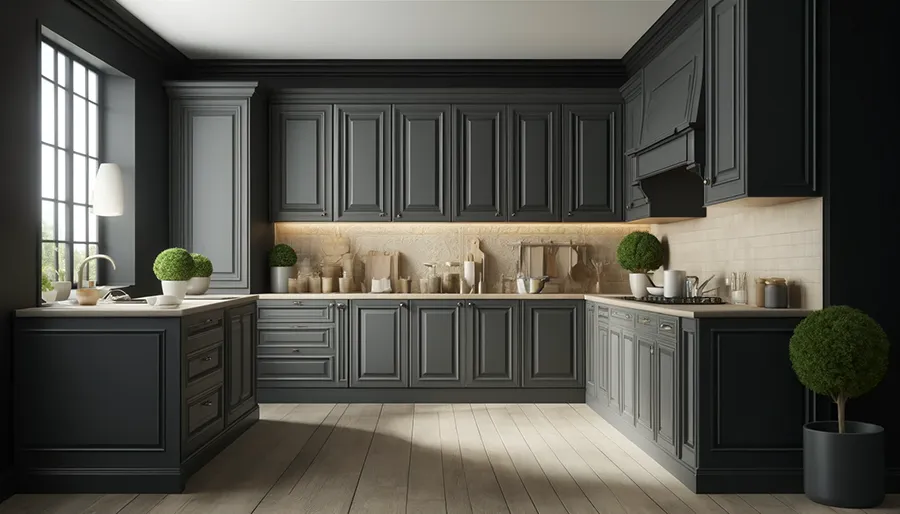
Consider the size of your kitchen, the amount of natural light it receives, your overall design aesthetic, and the ambiance you want to create.
Do light kitchen cabinet colors require more maintenance than dark colors?
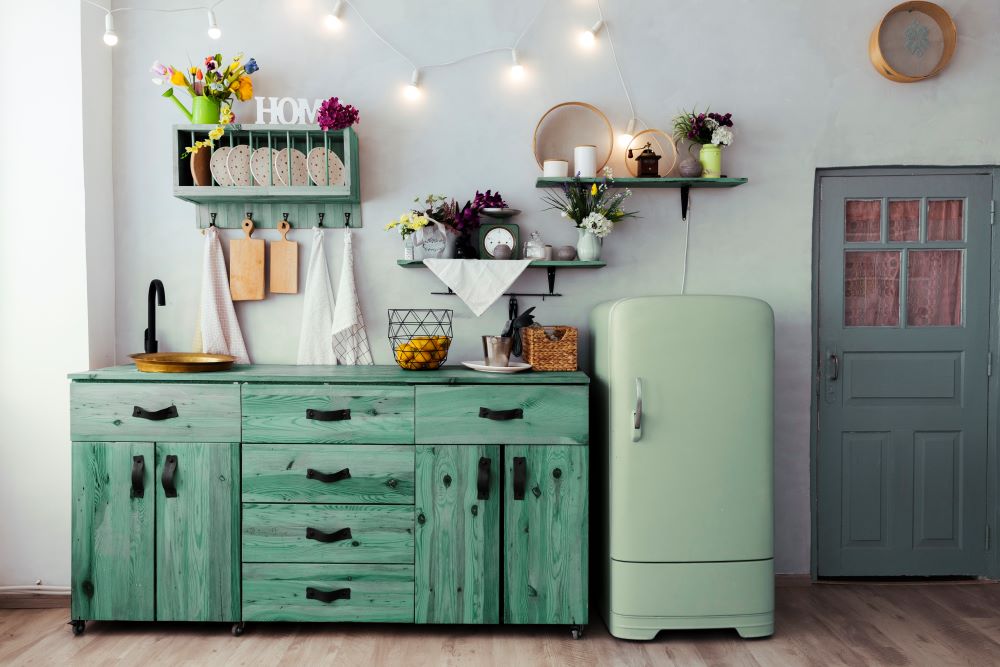
Light colors may show stains and dirt more easily than dark colors, so they may require more frequent cleaning to maintain their appearance.
How can I create contrast and balance in my kitchen design when choosing between light and dark cabinet colors?
You can create contrast by pairing light cabinets with dark countertops or vice versa, and use accessories and decor to balance out the overall look.
Are there any current trends in kitchen cabinet colors that I should be aware of?
Currently, a popular trend is mixing light and dark cabinet colors in the same kitchen to create a visually dynamic and interesting space.


